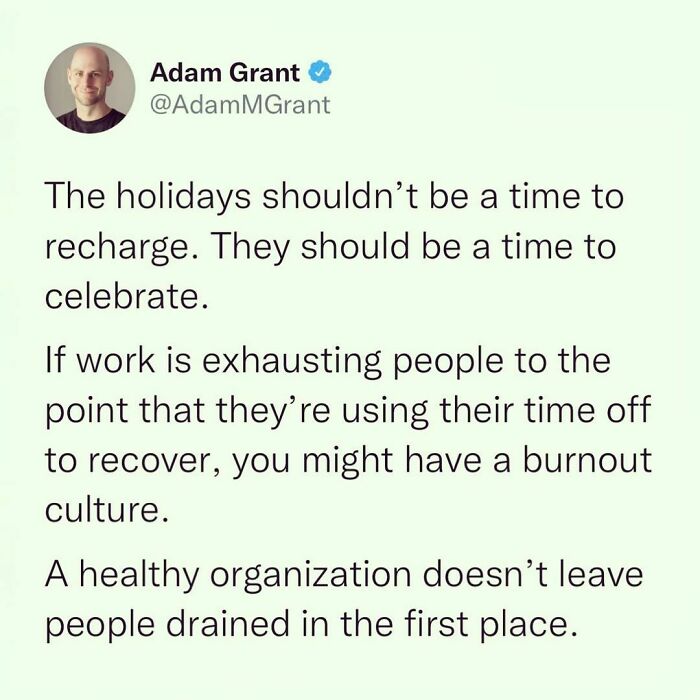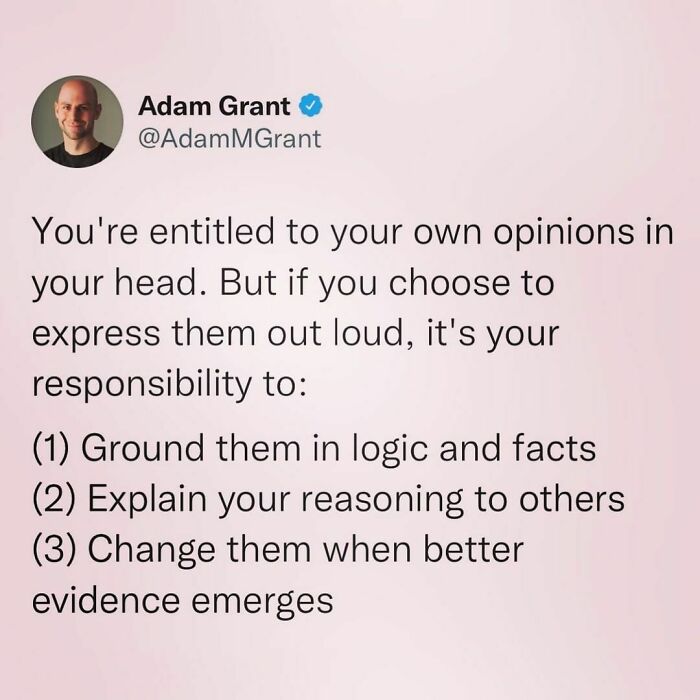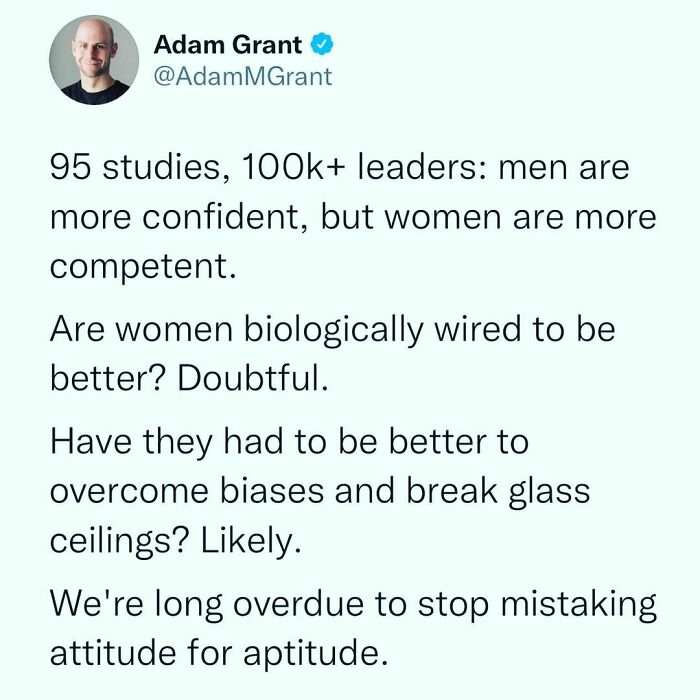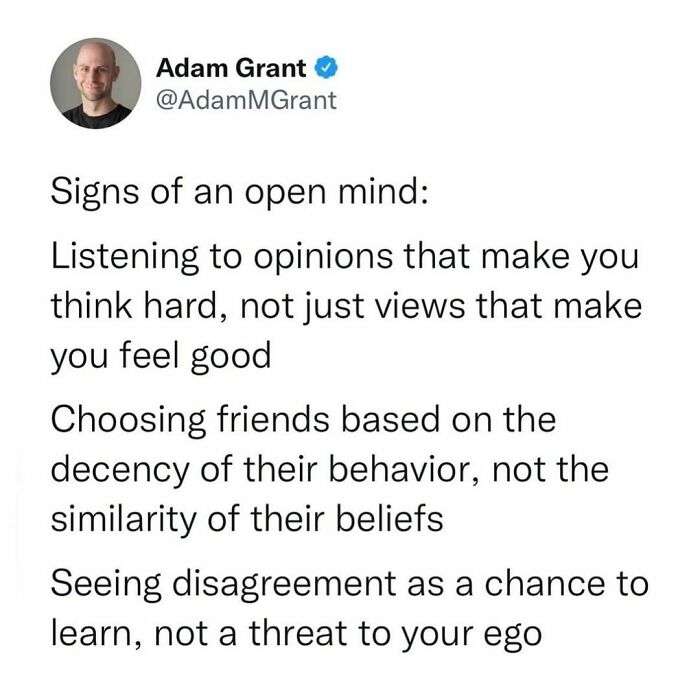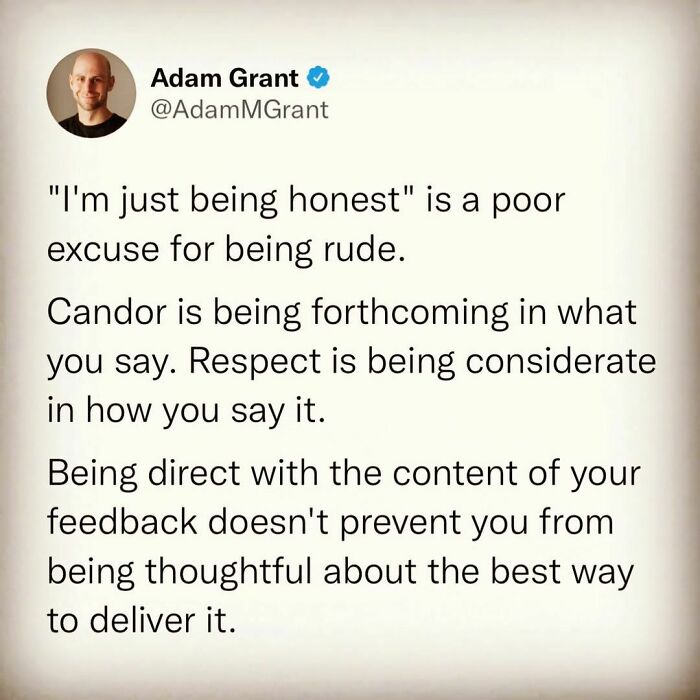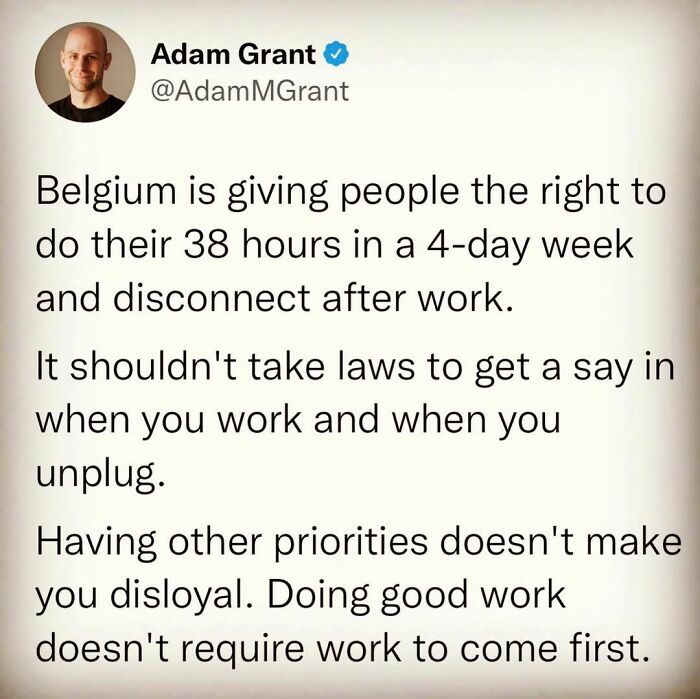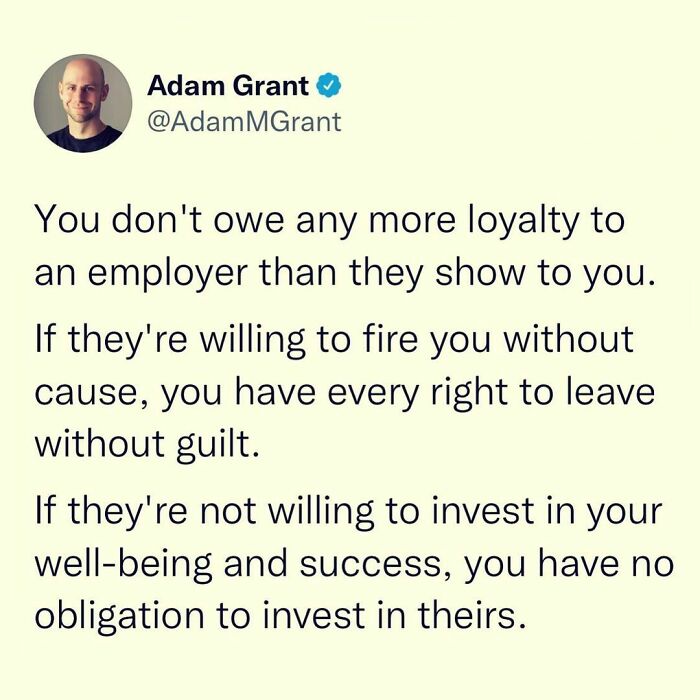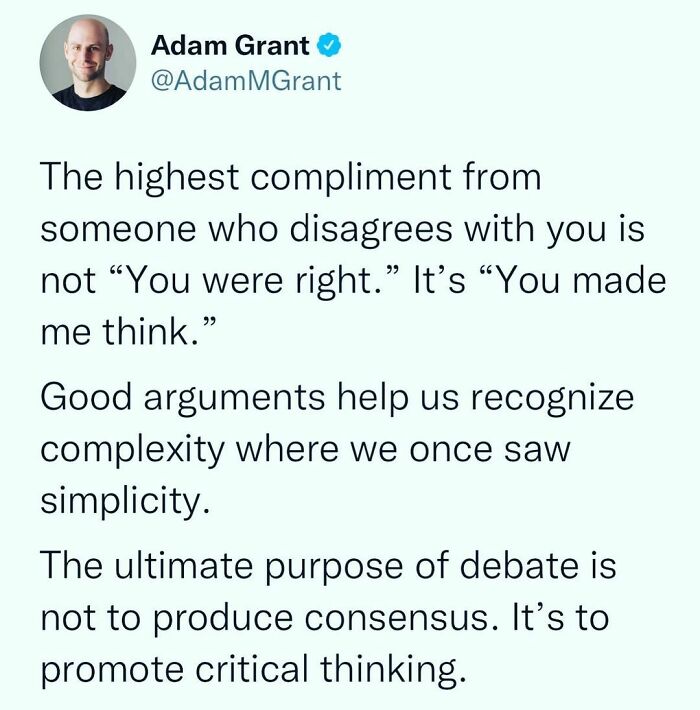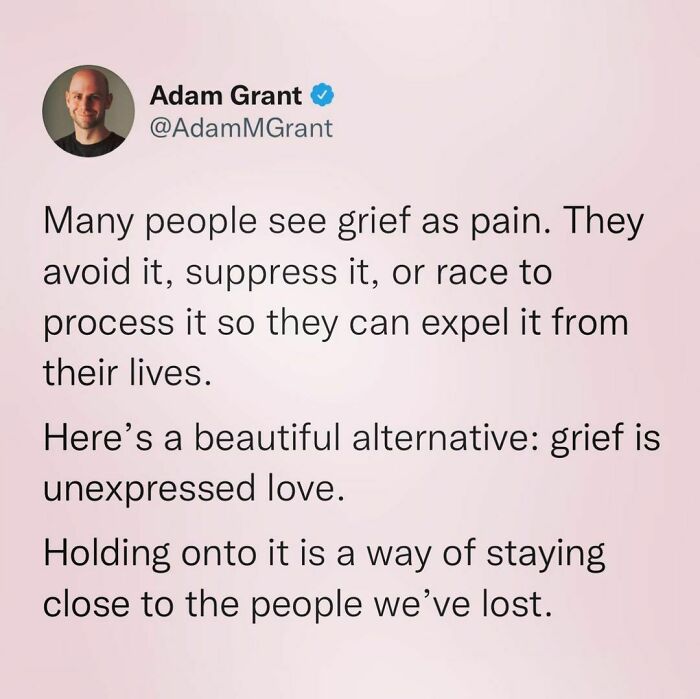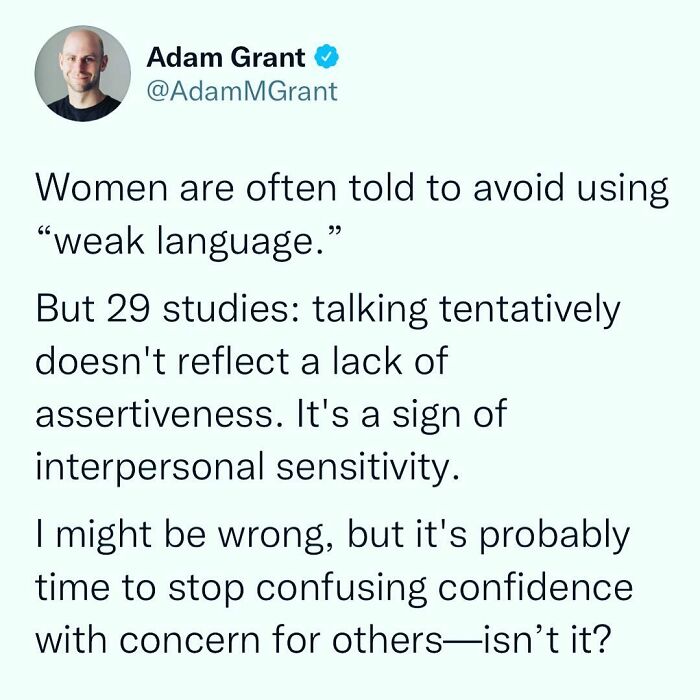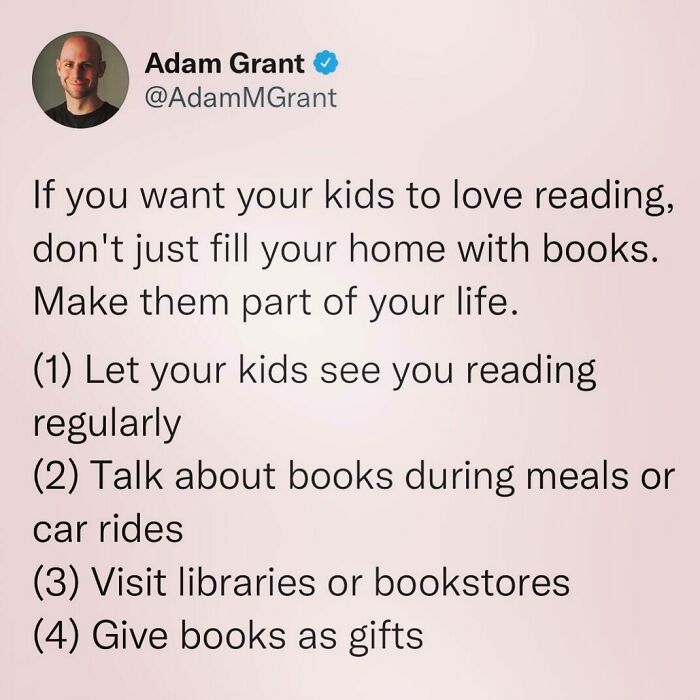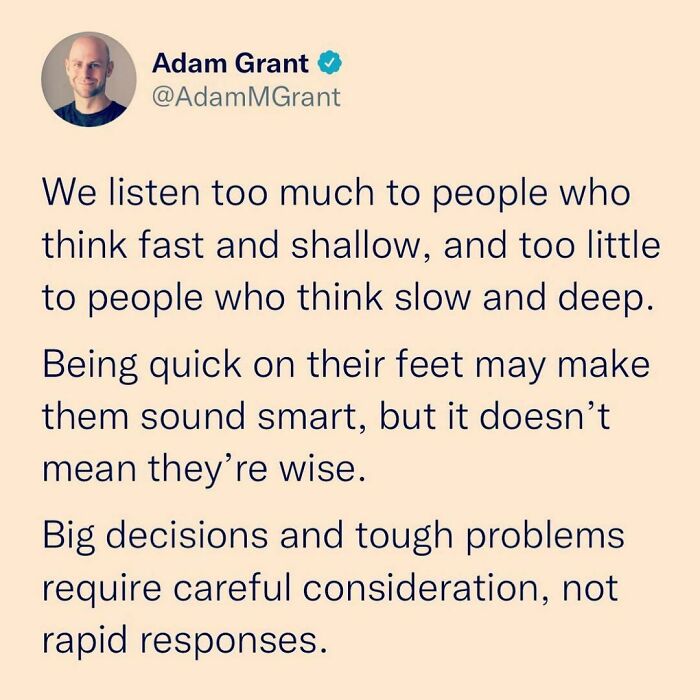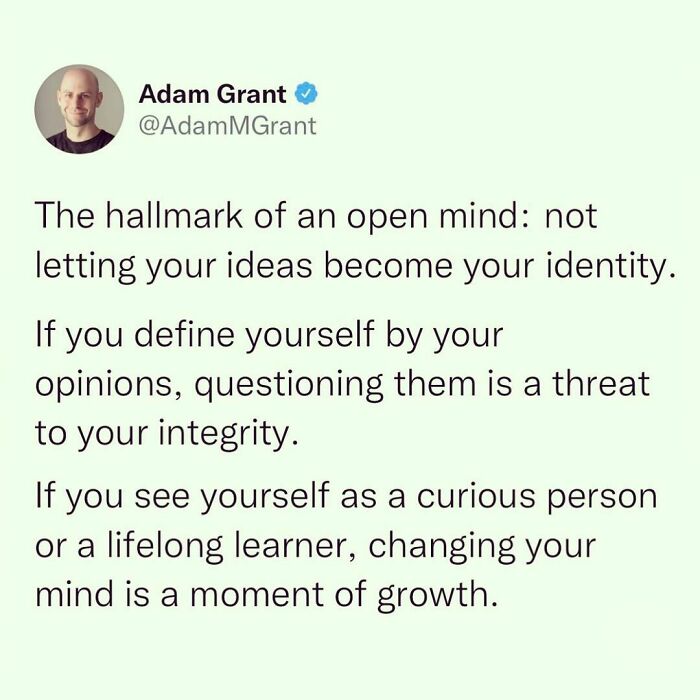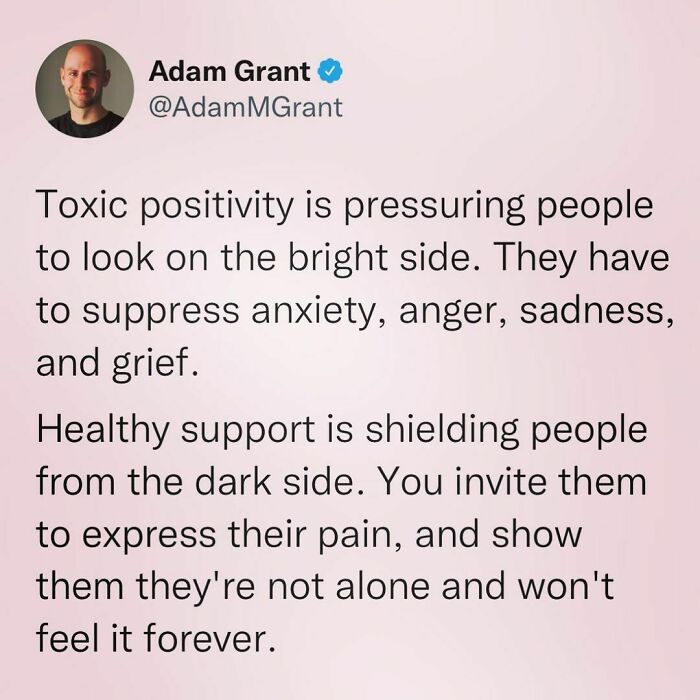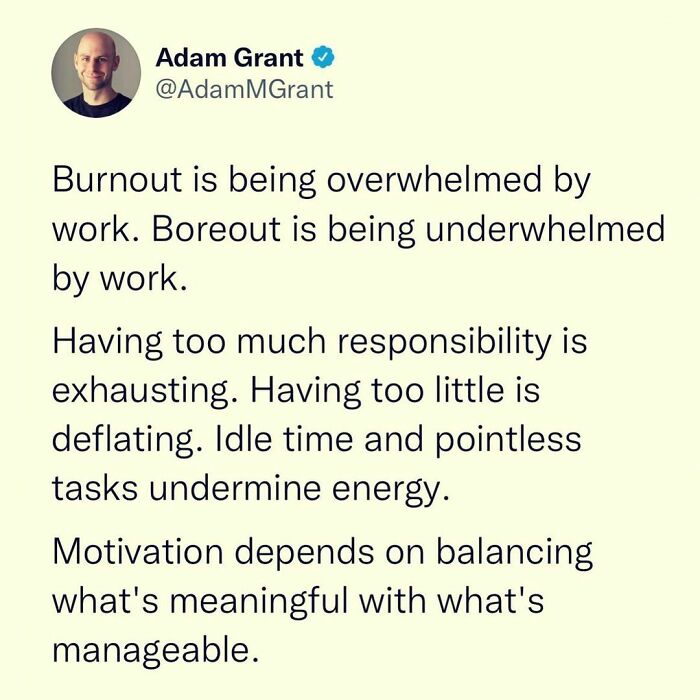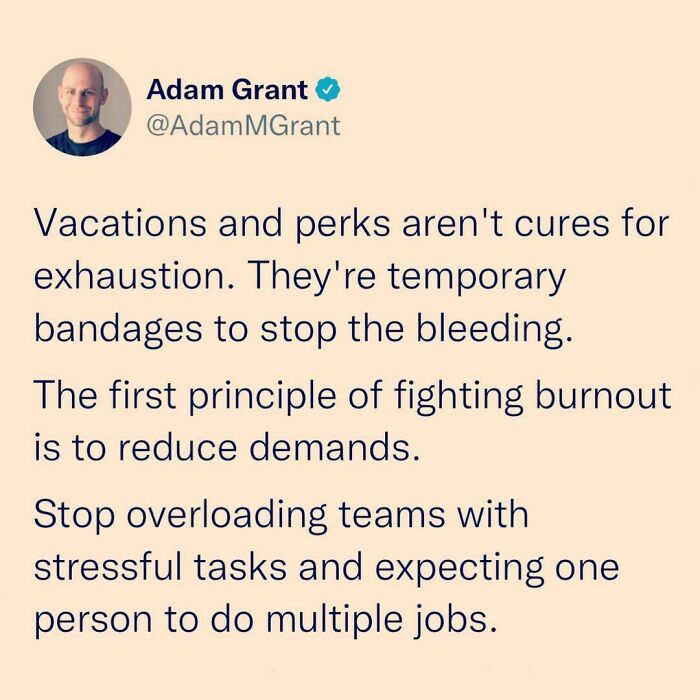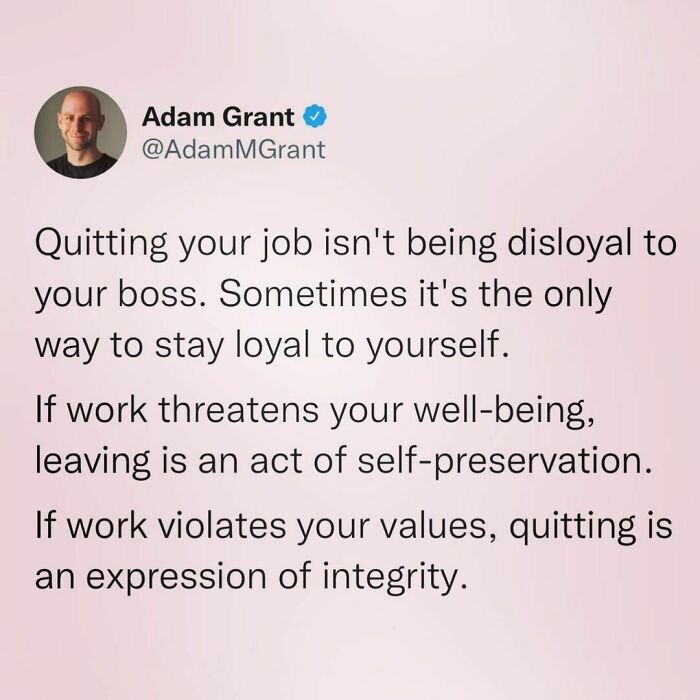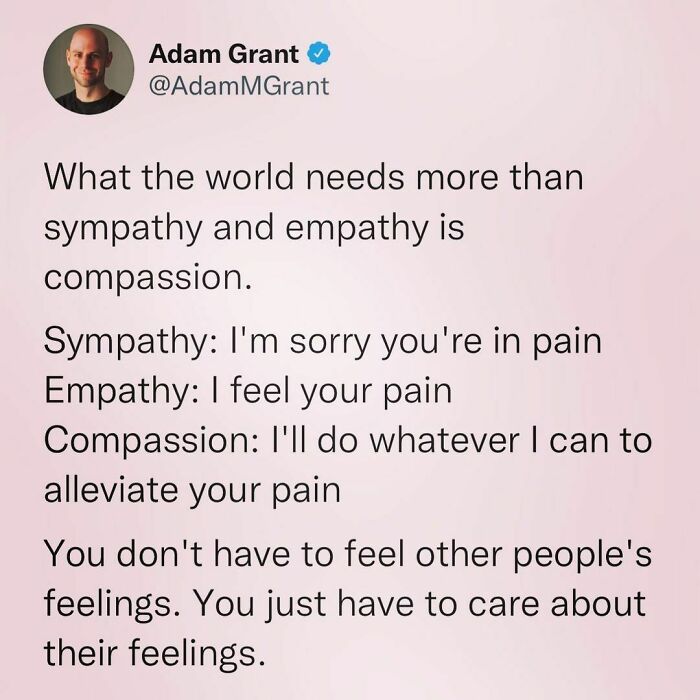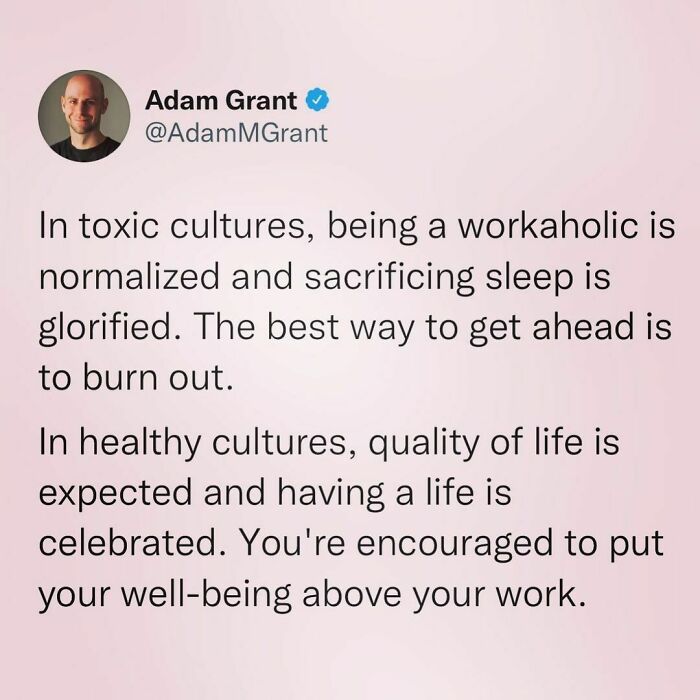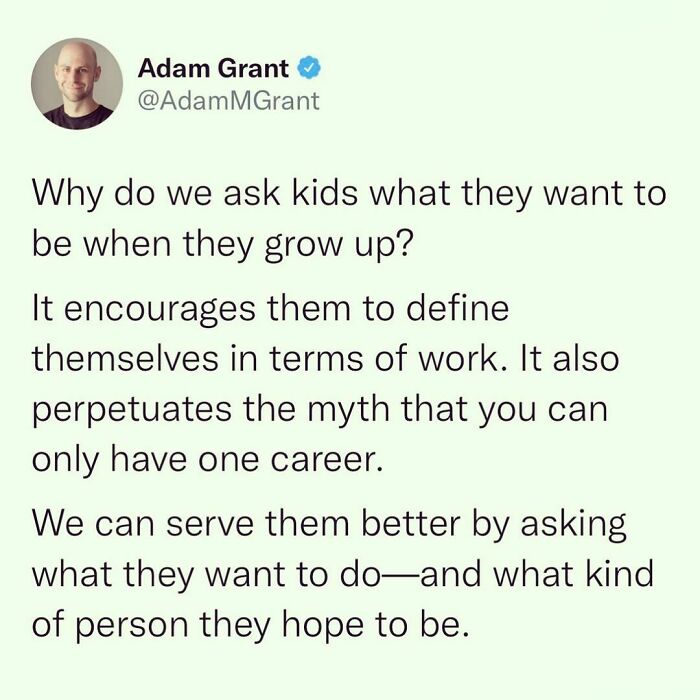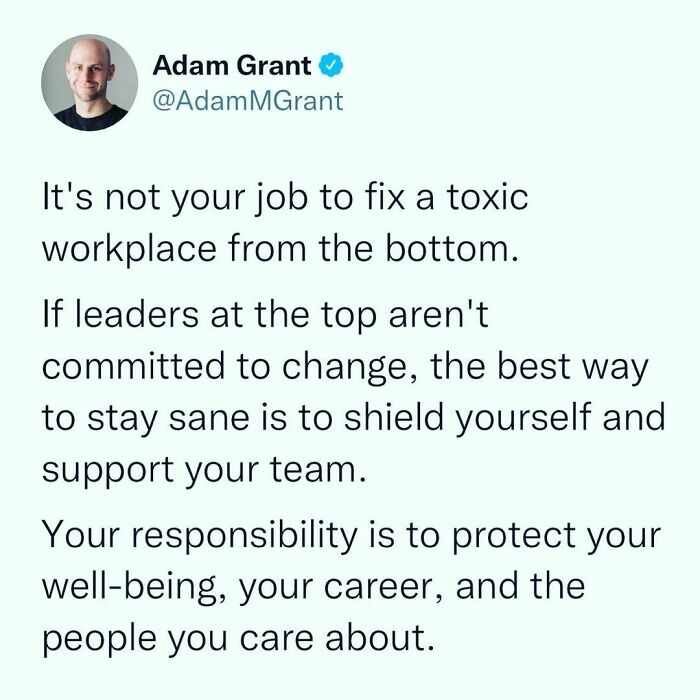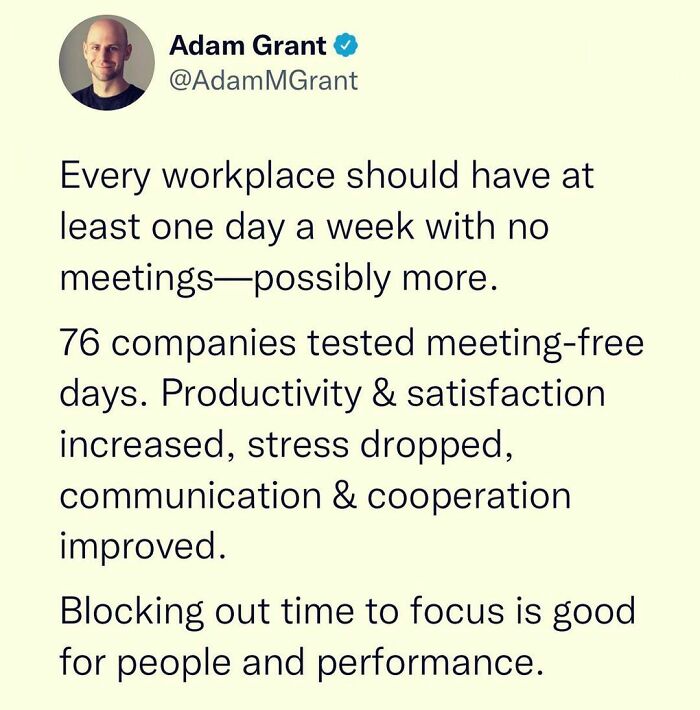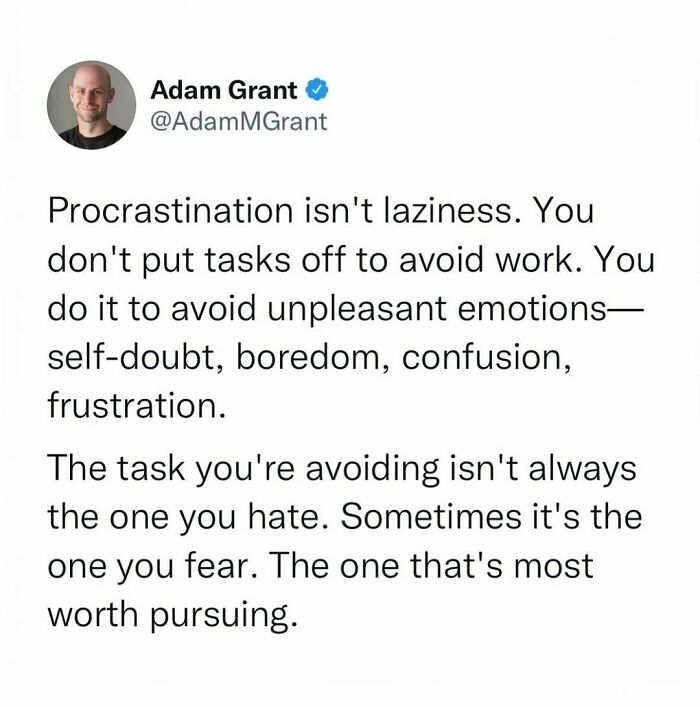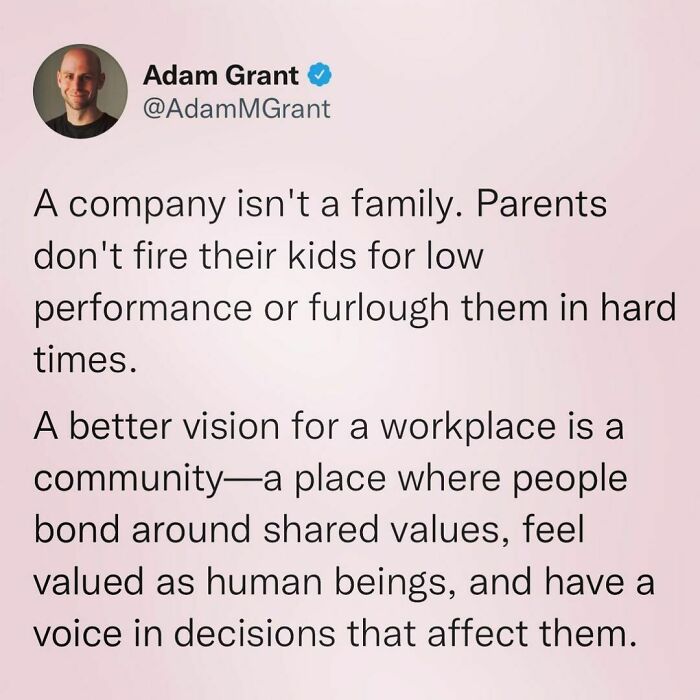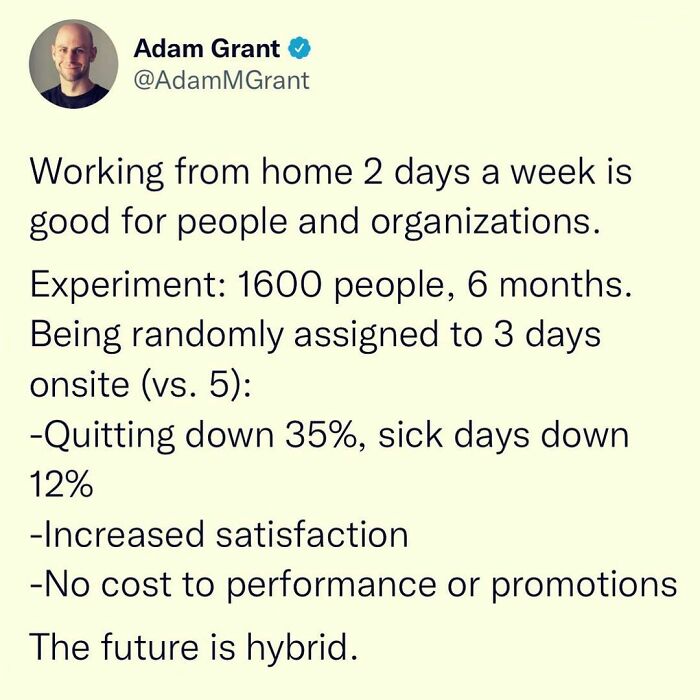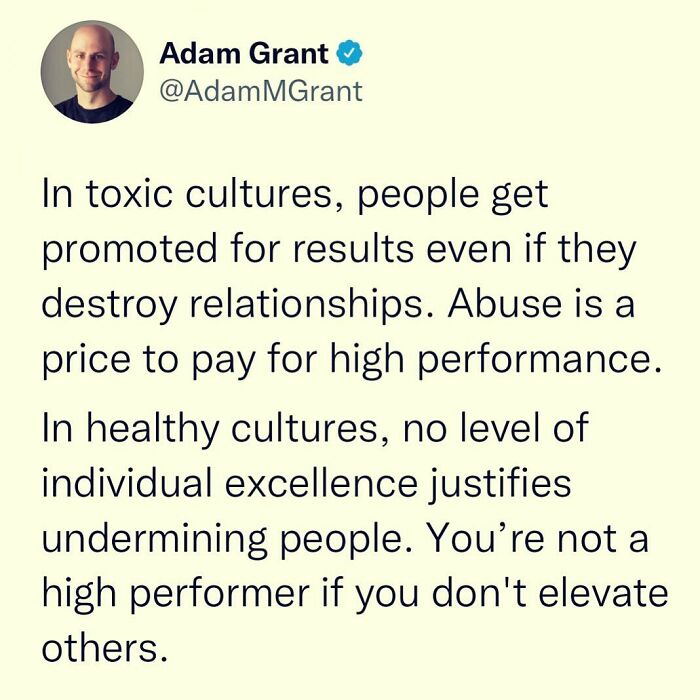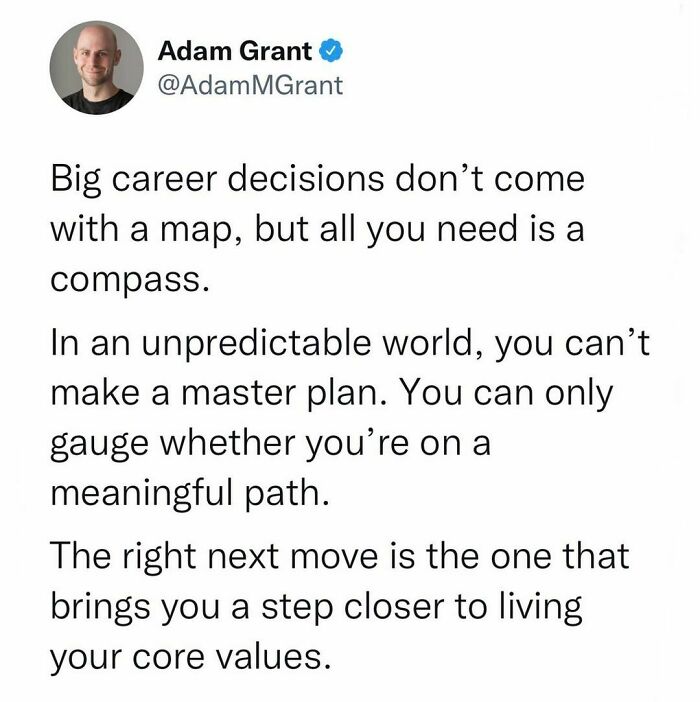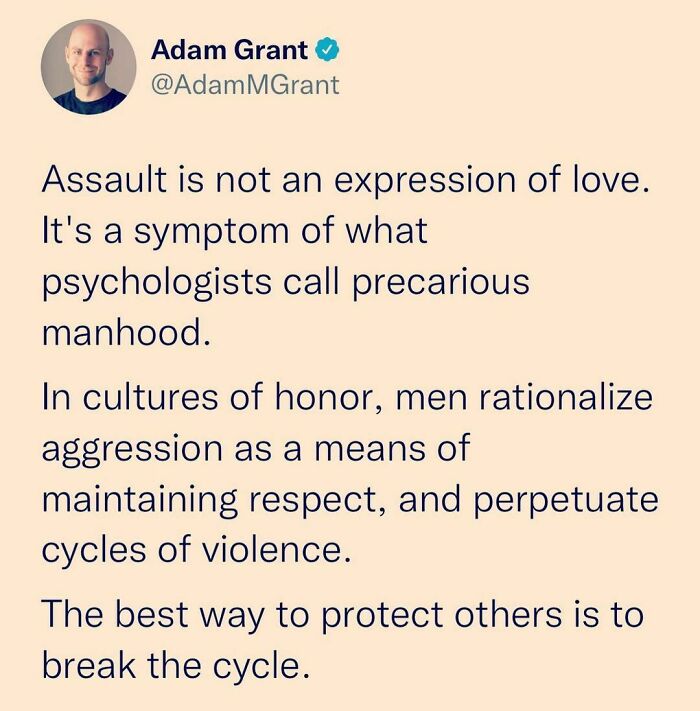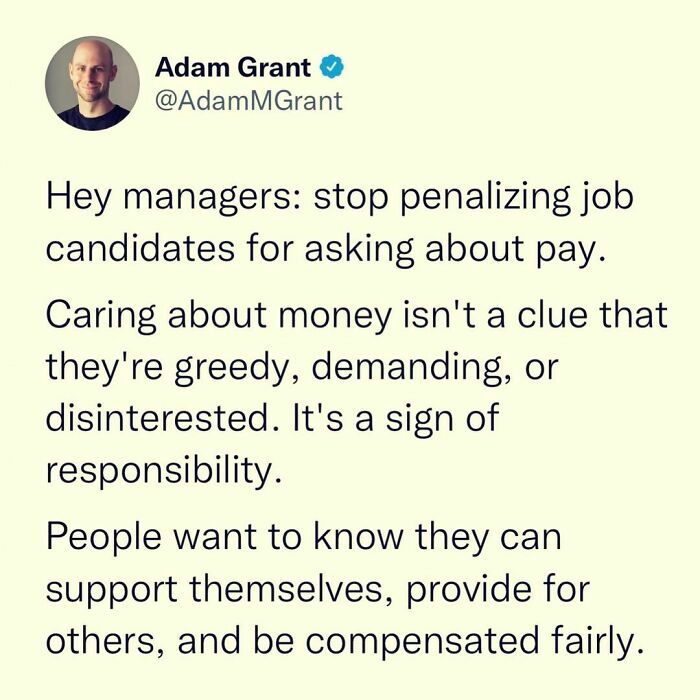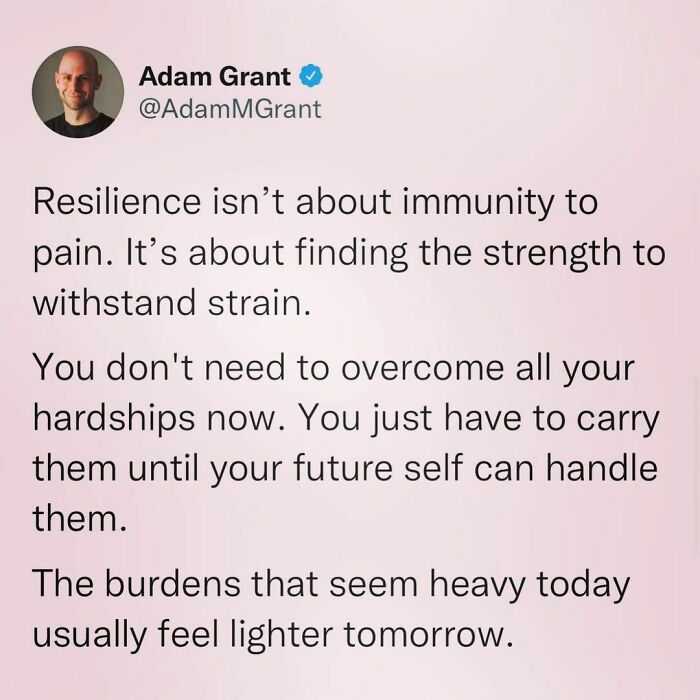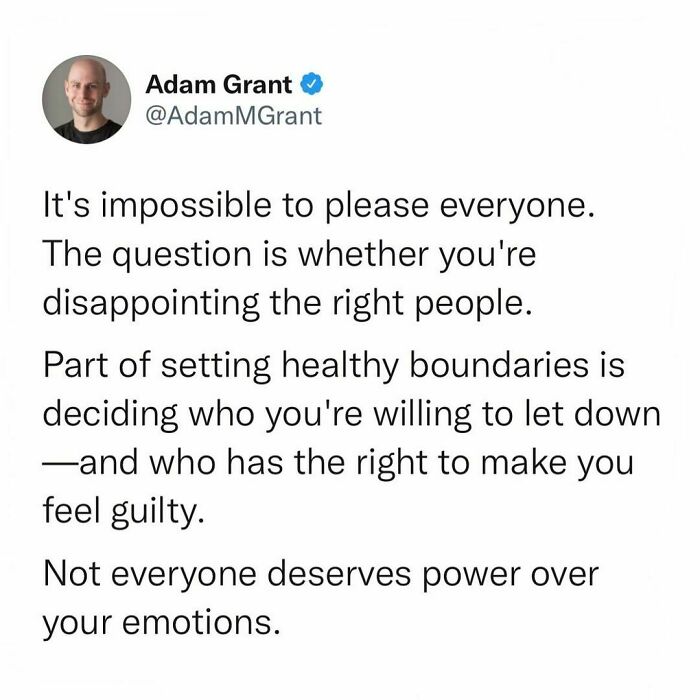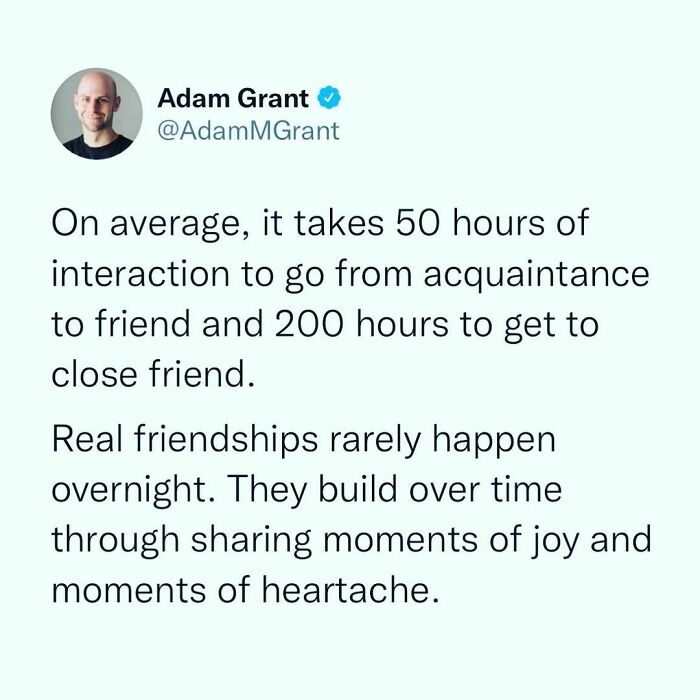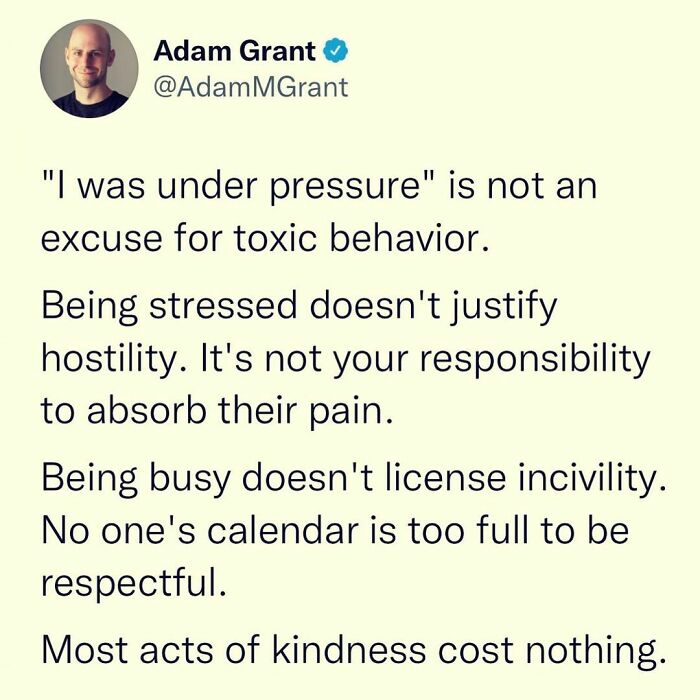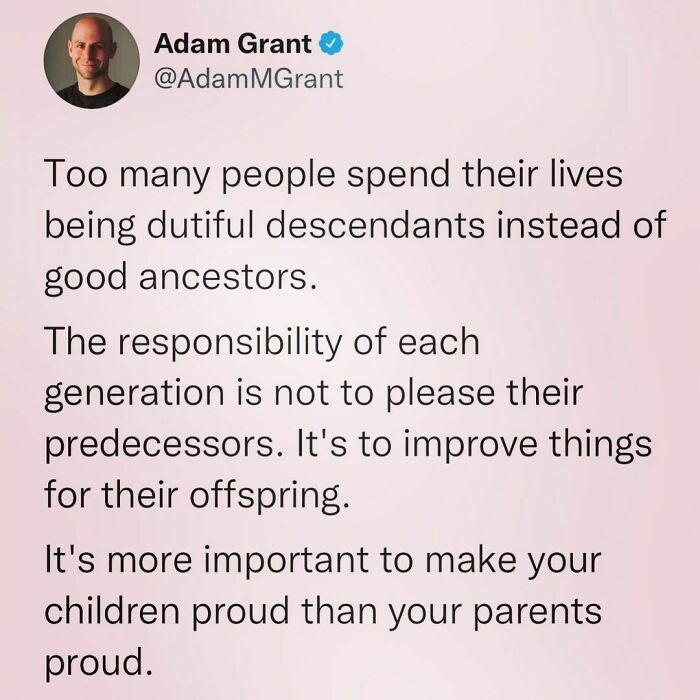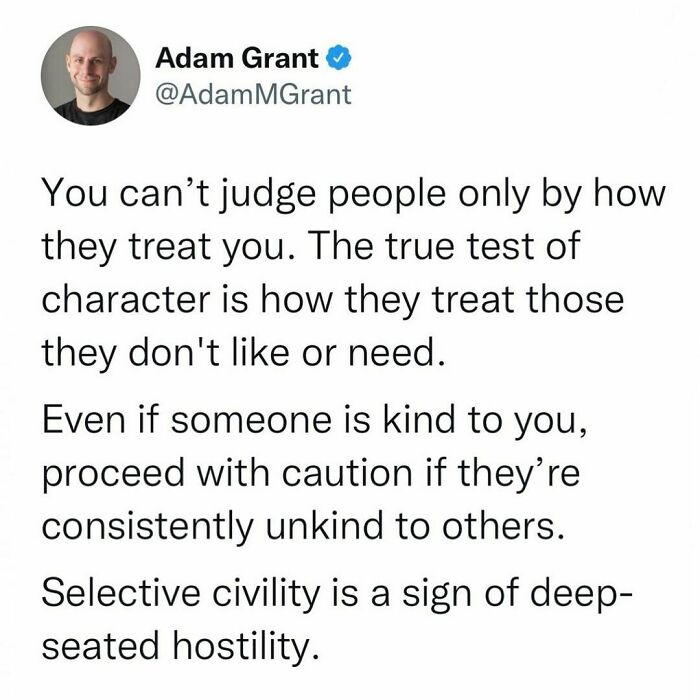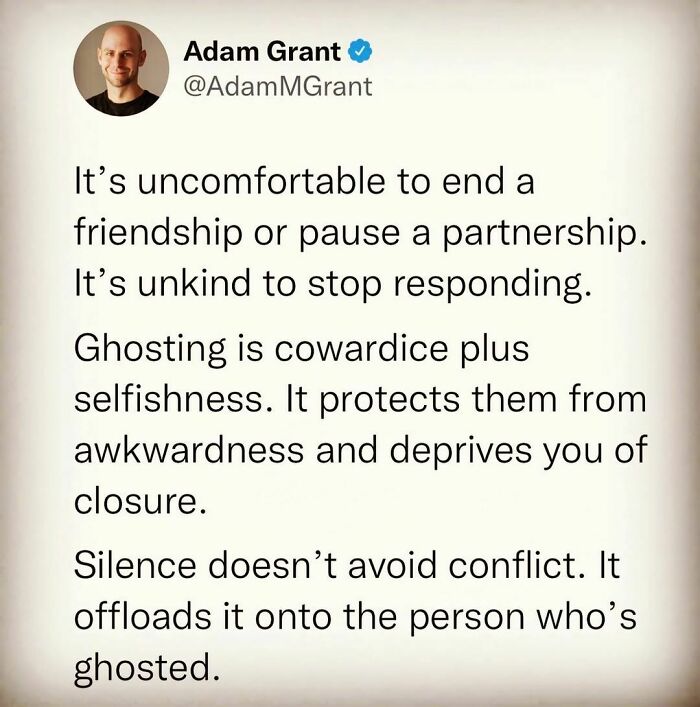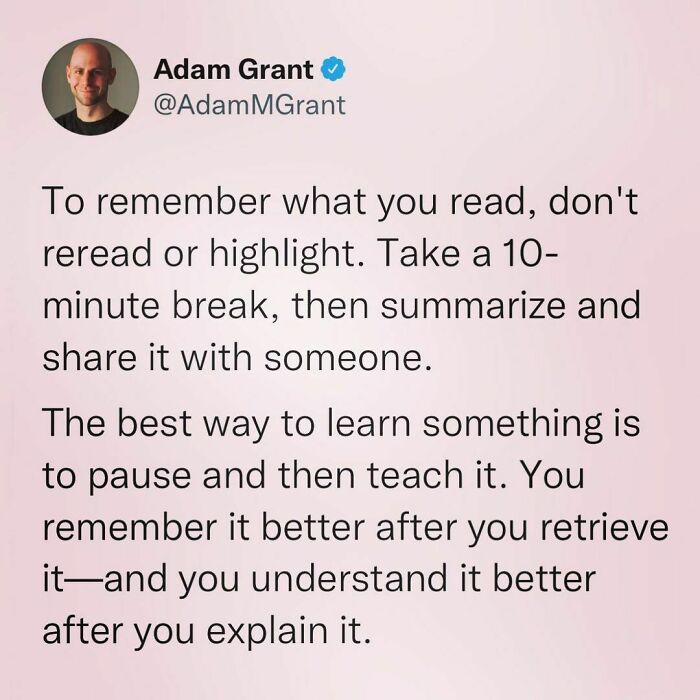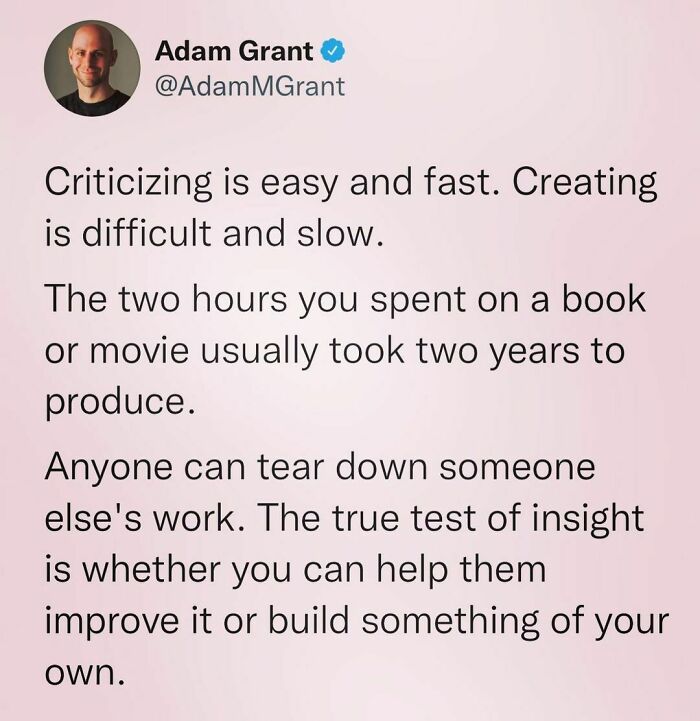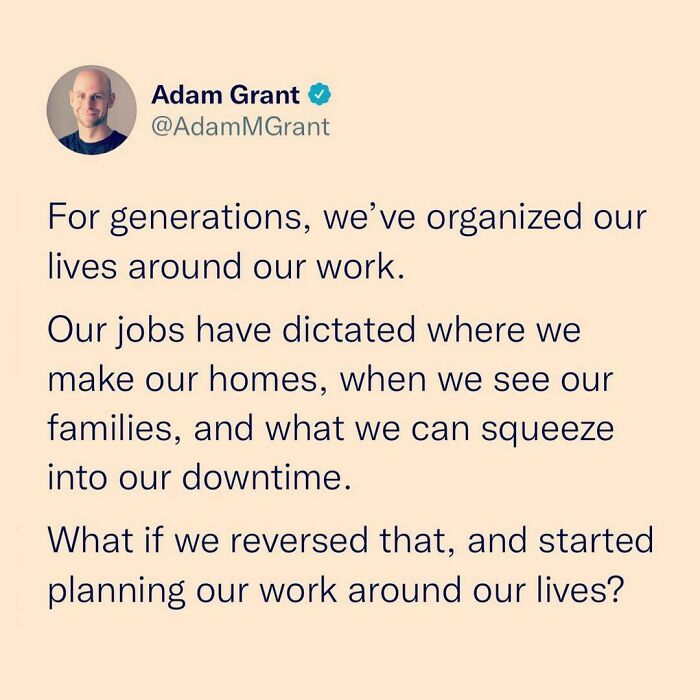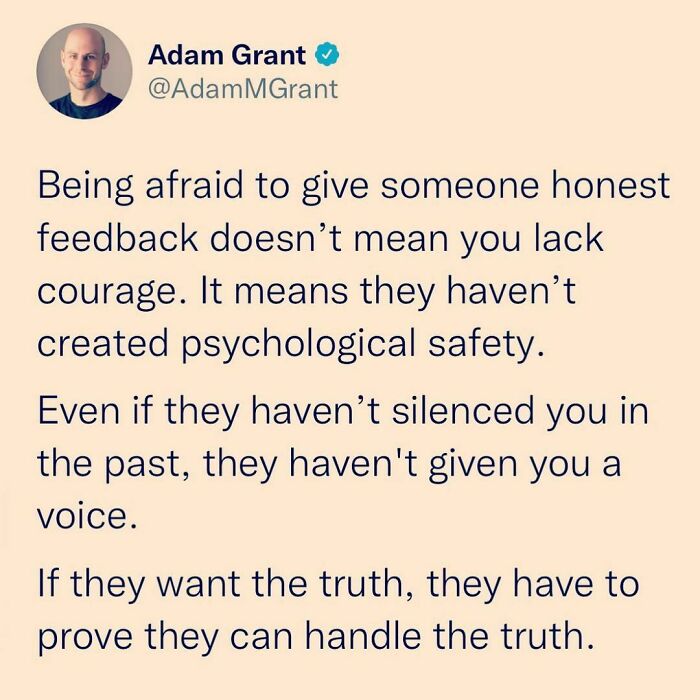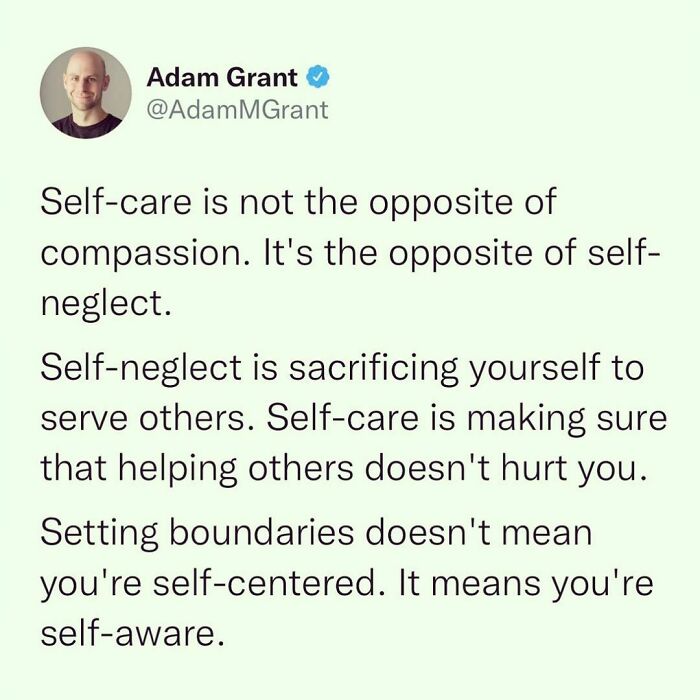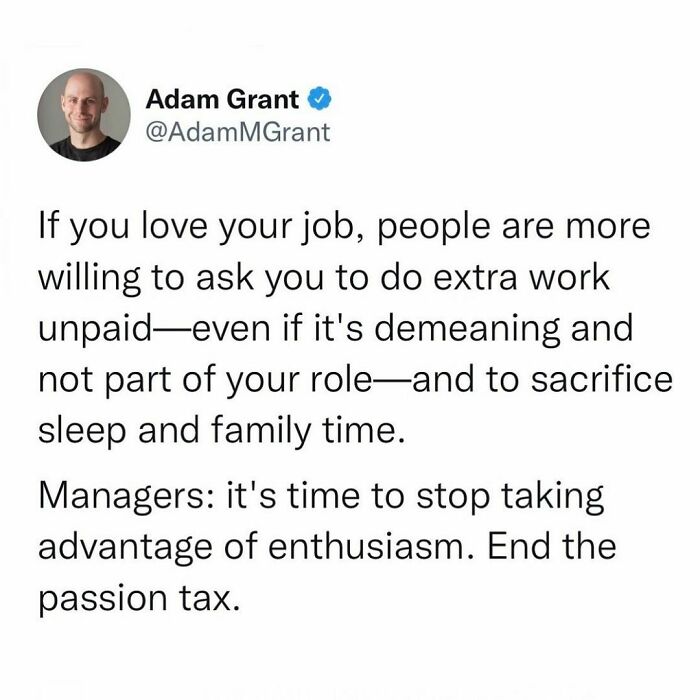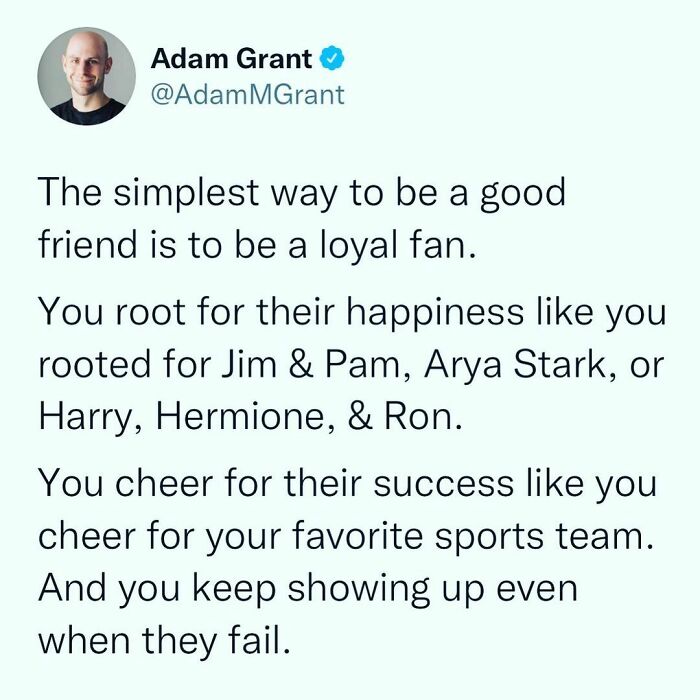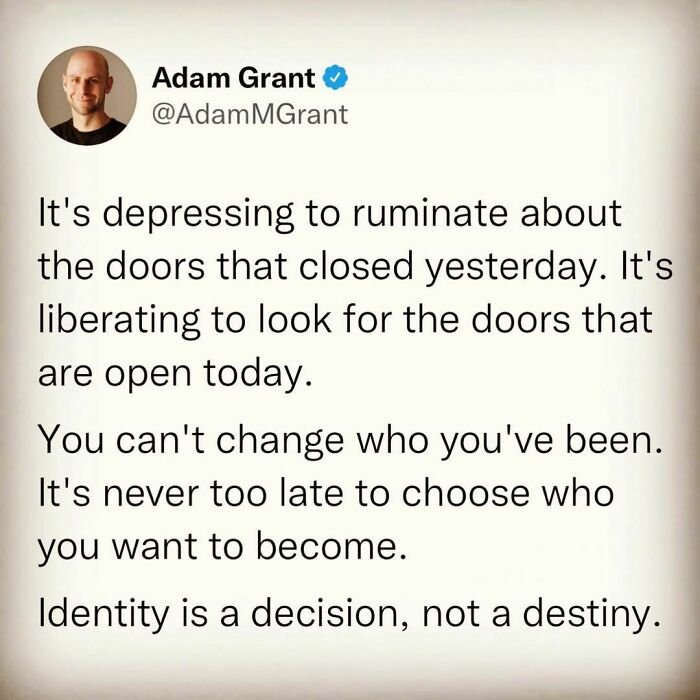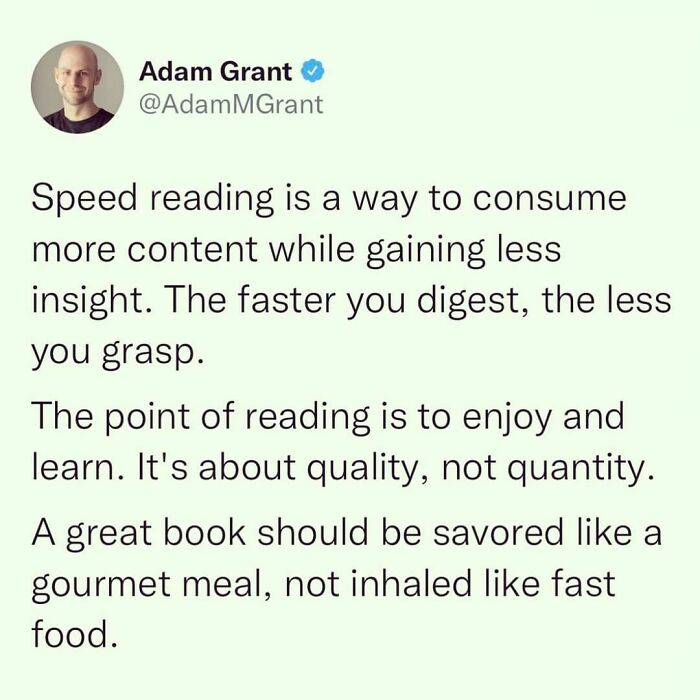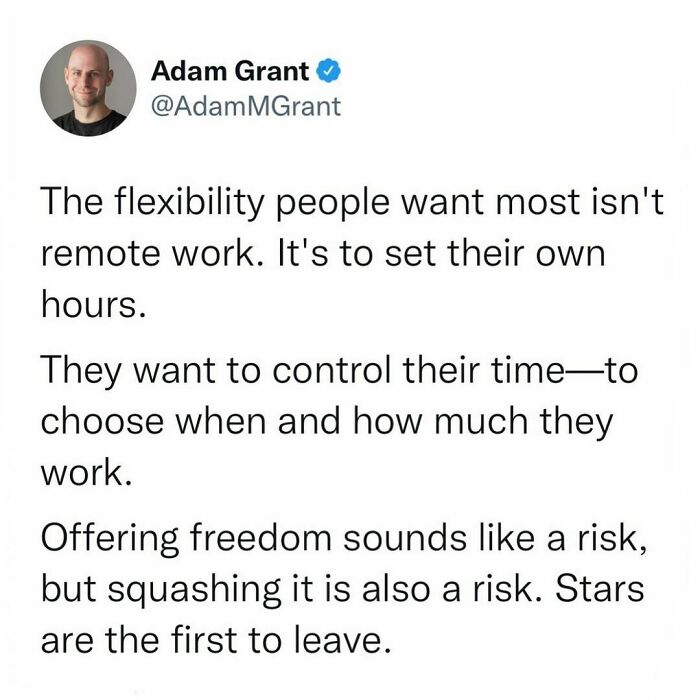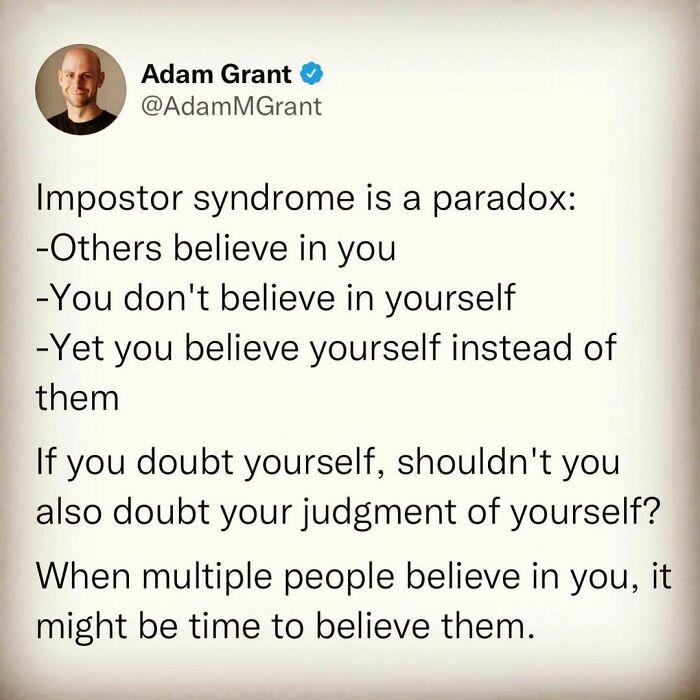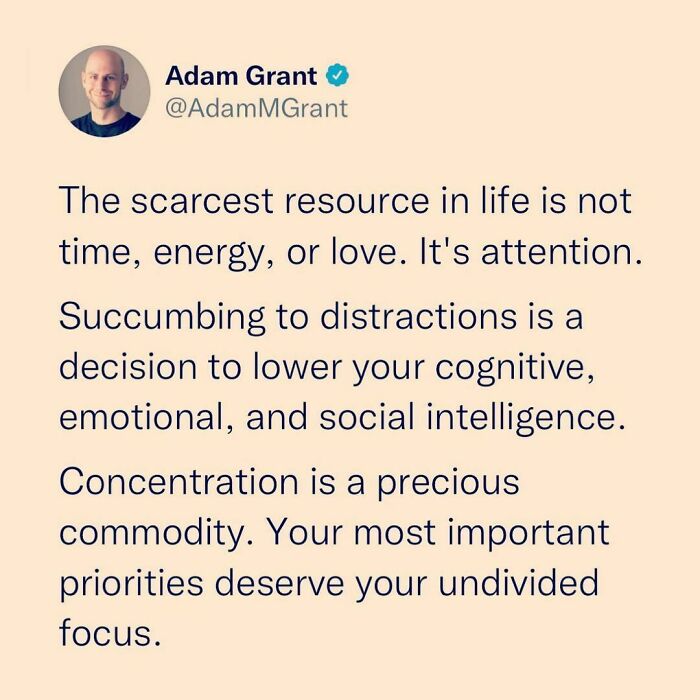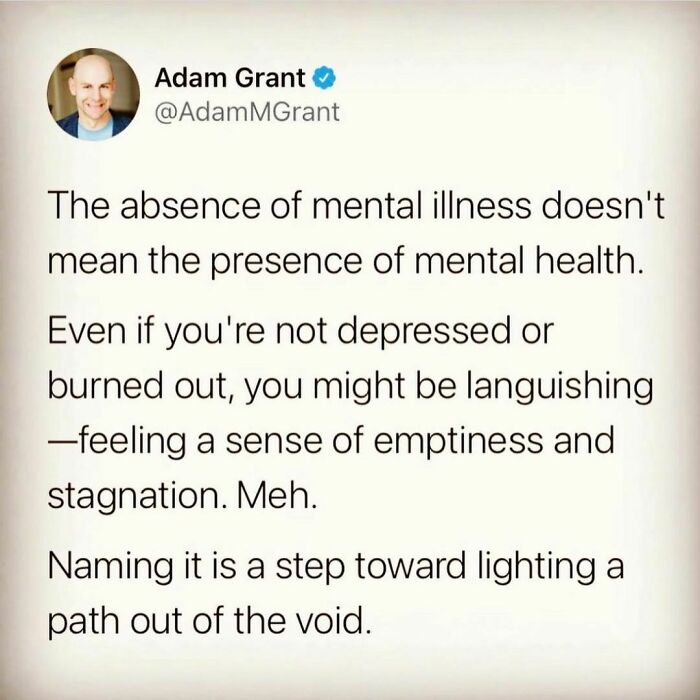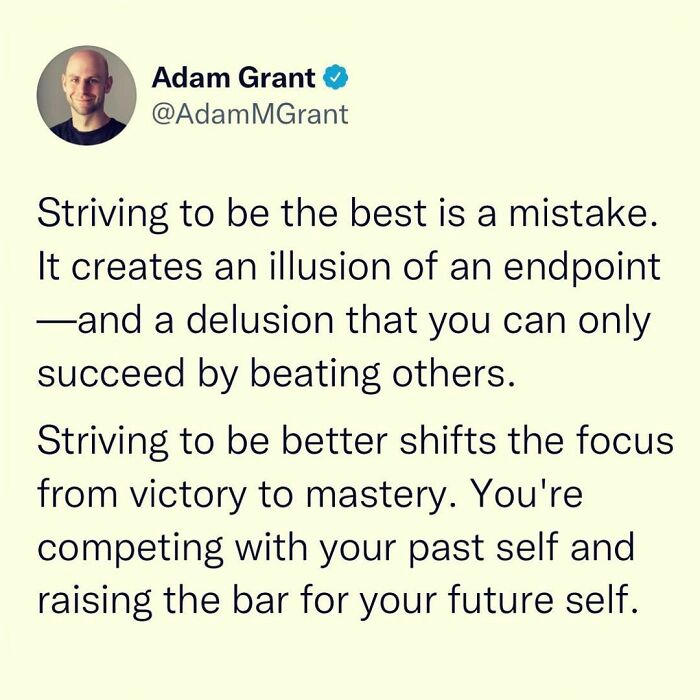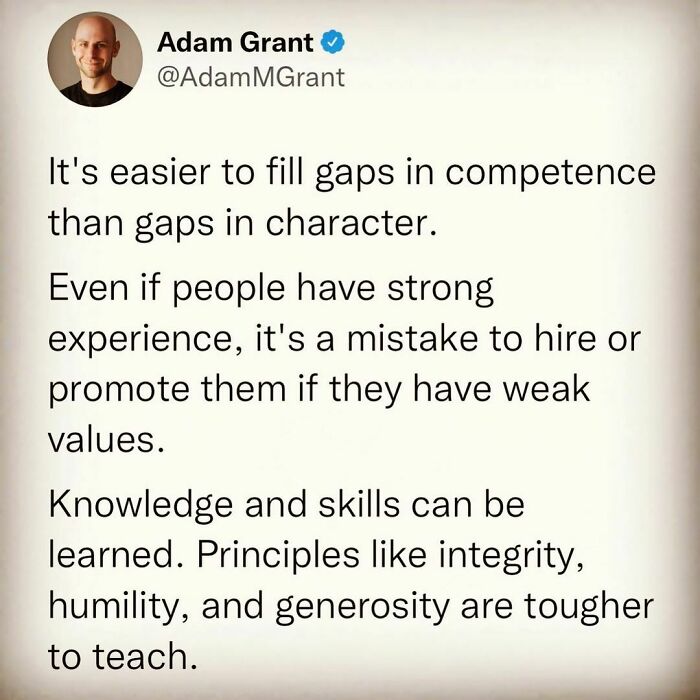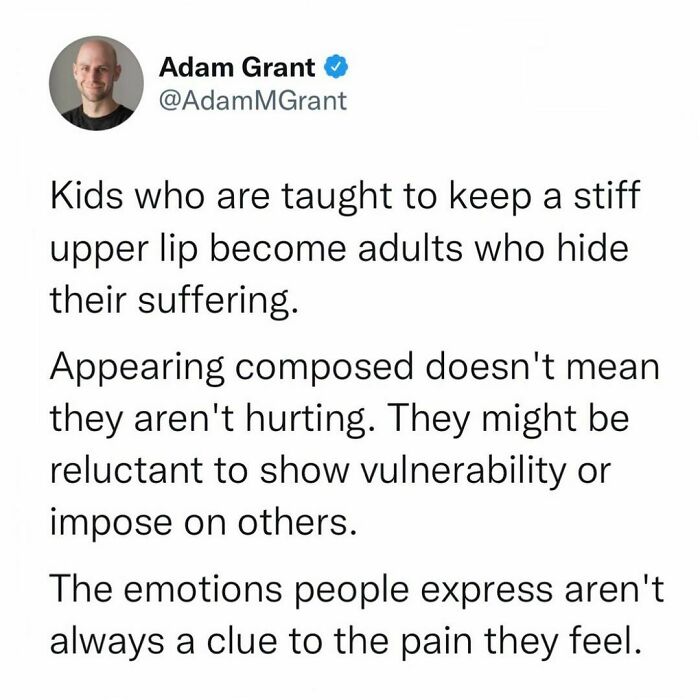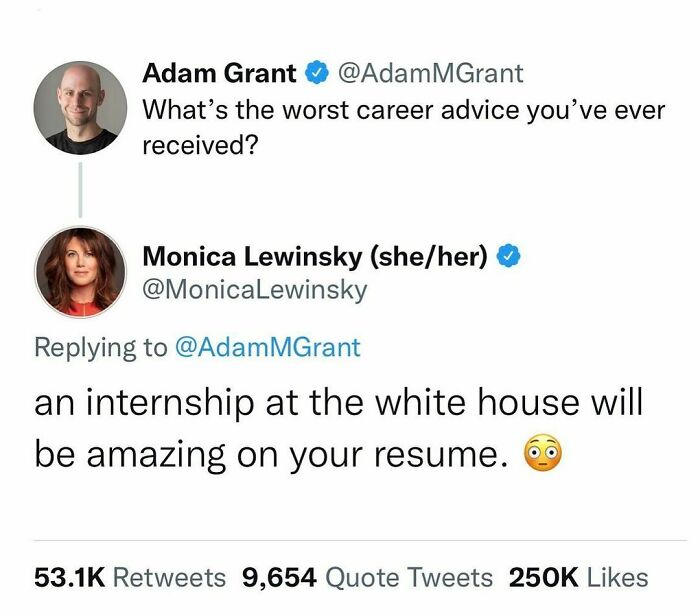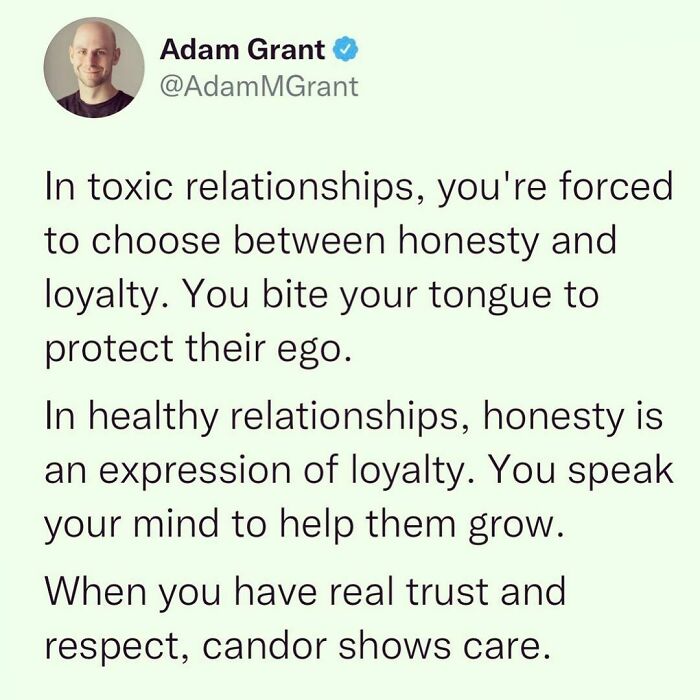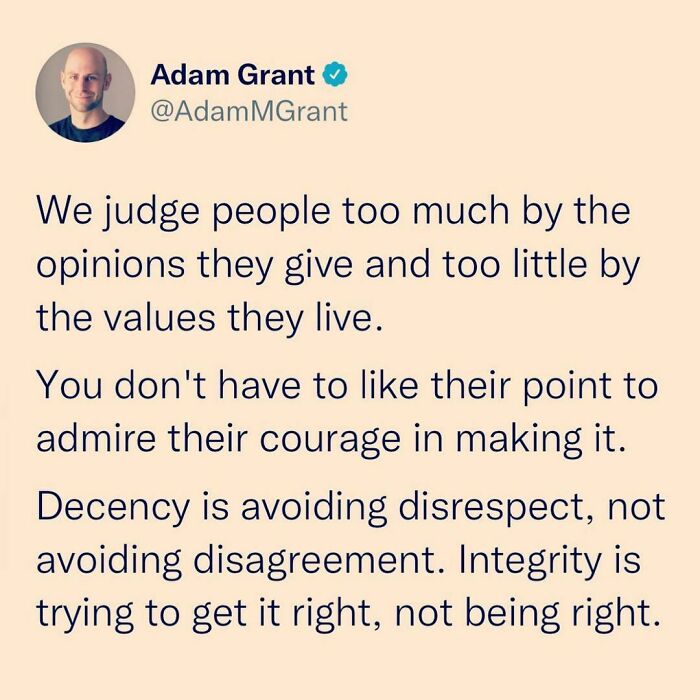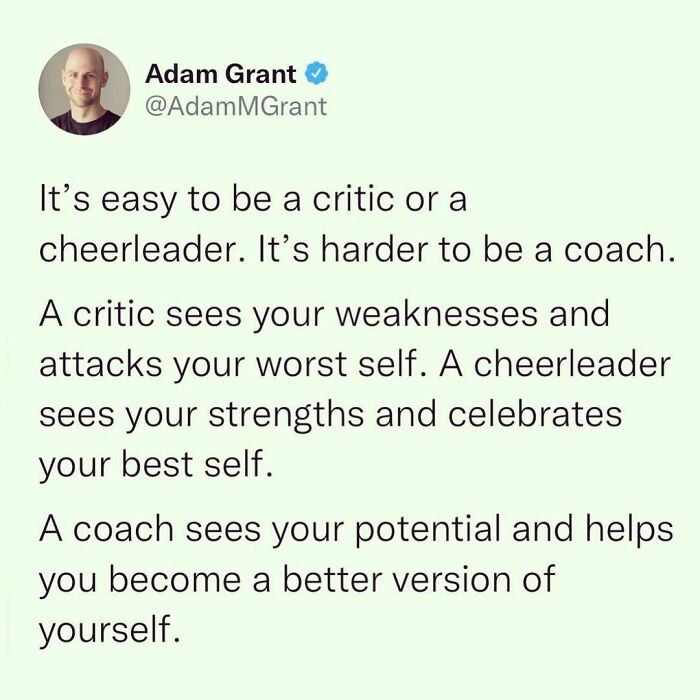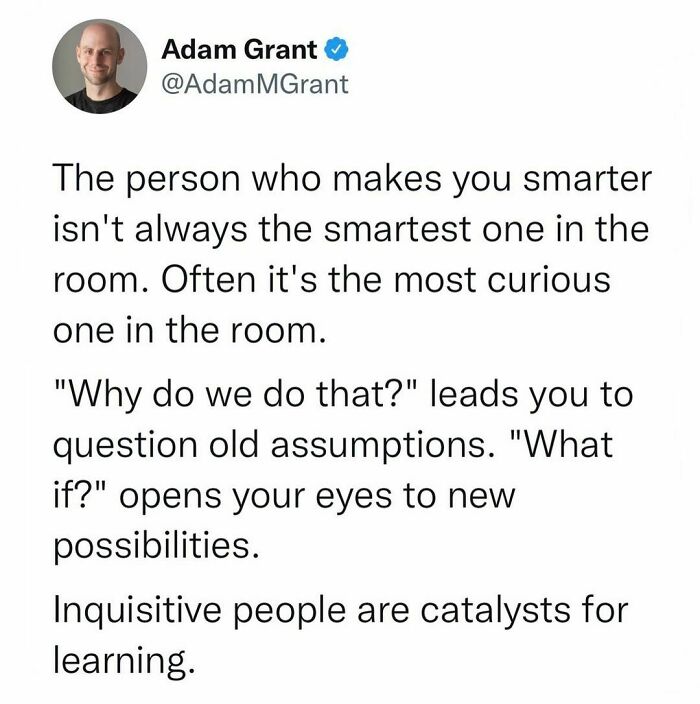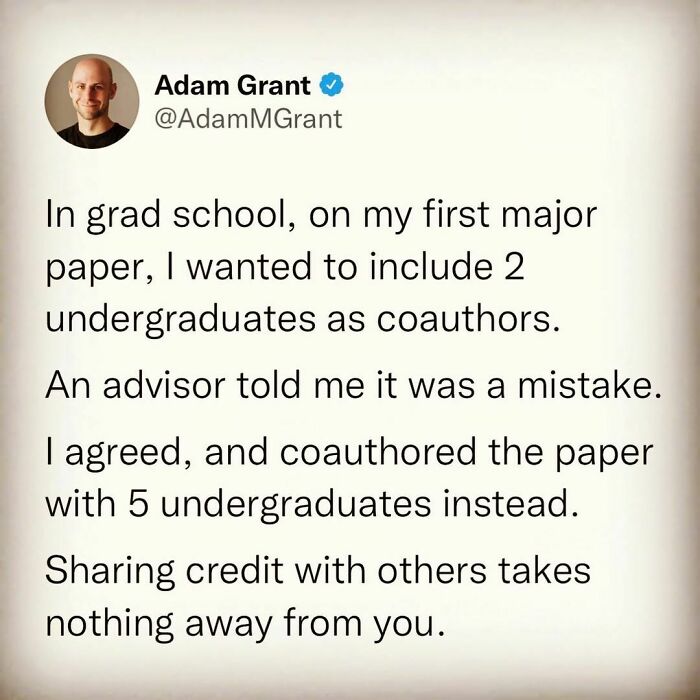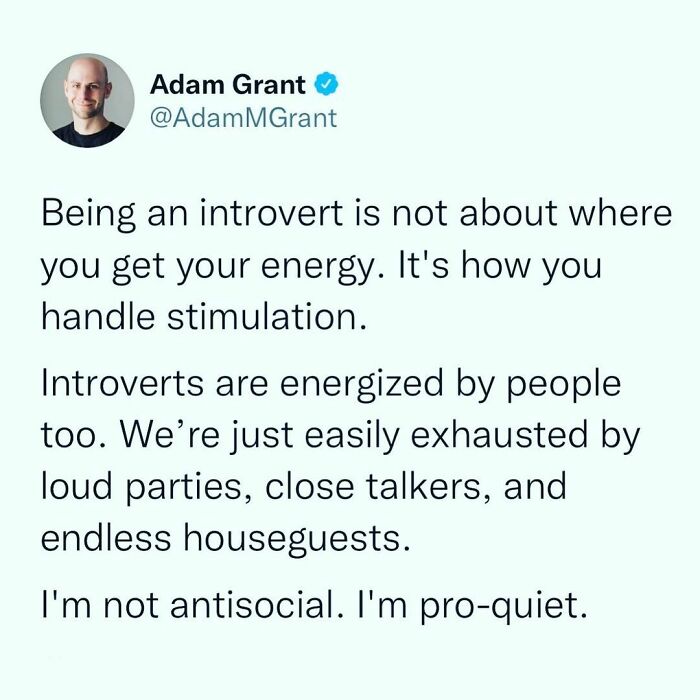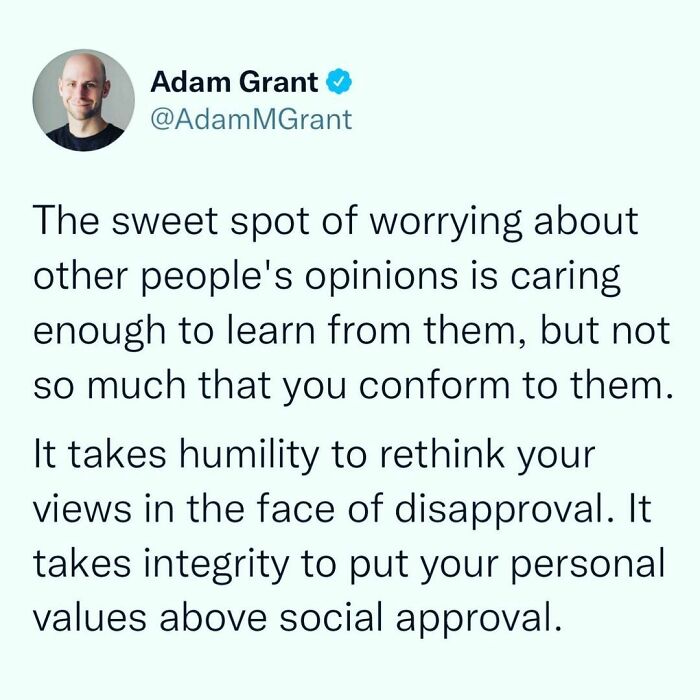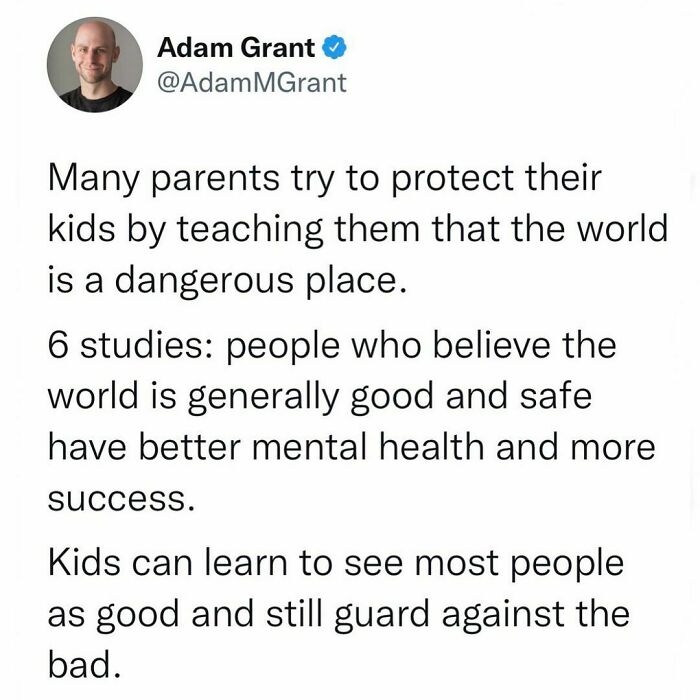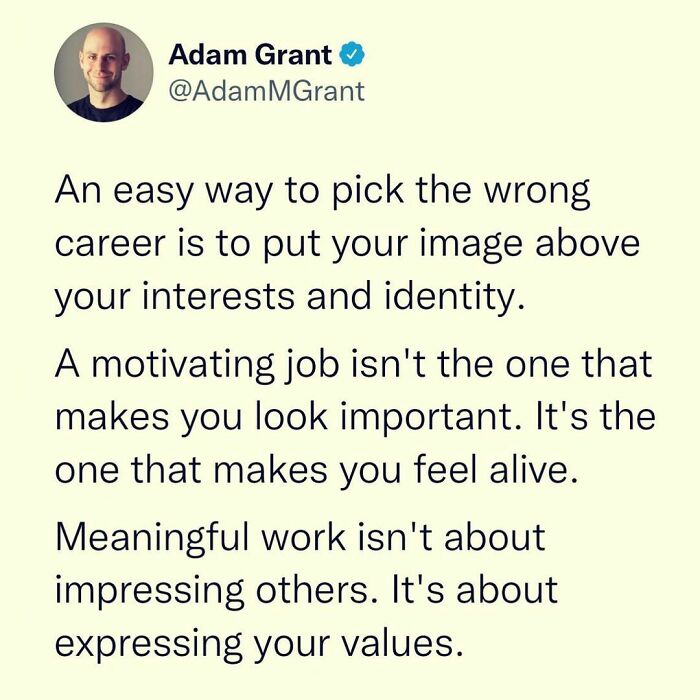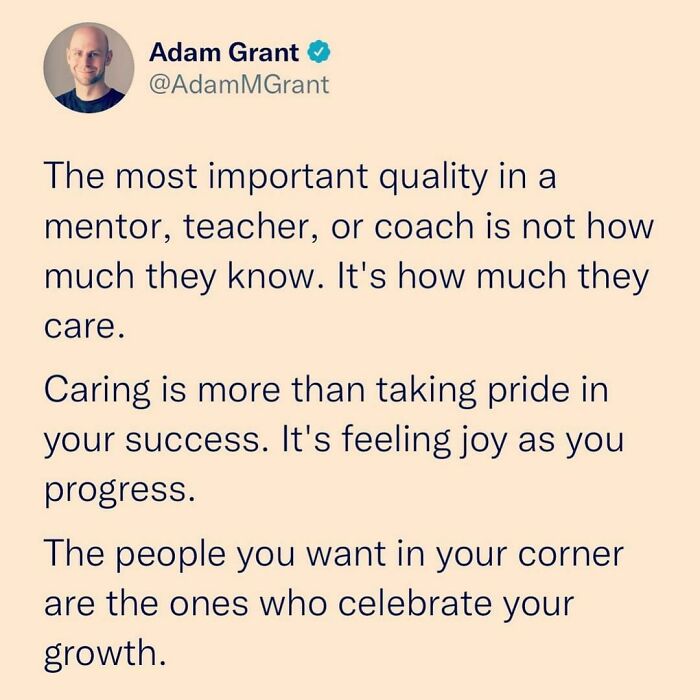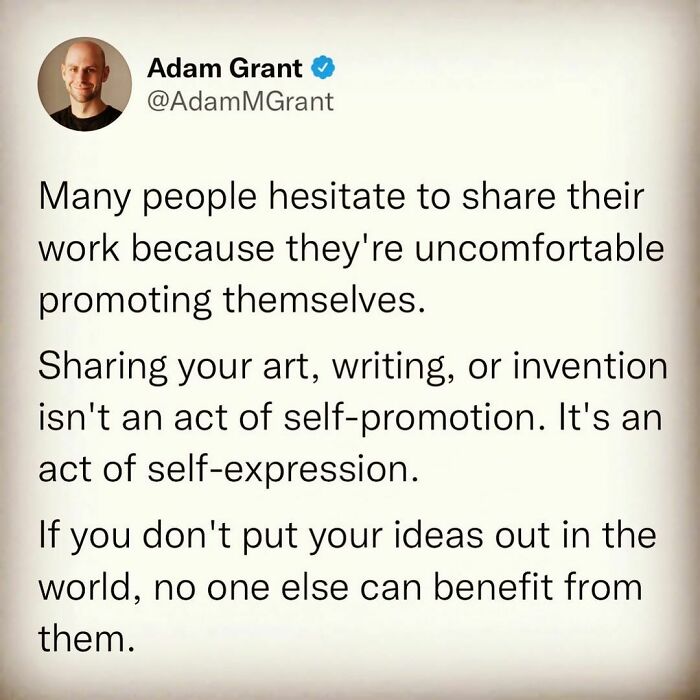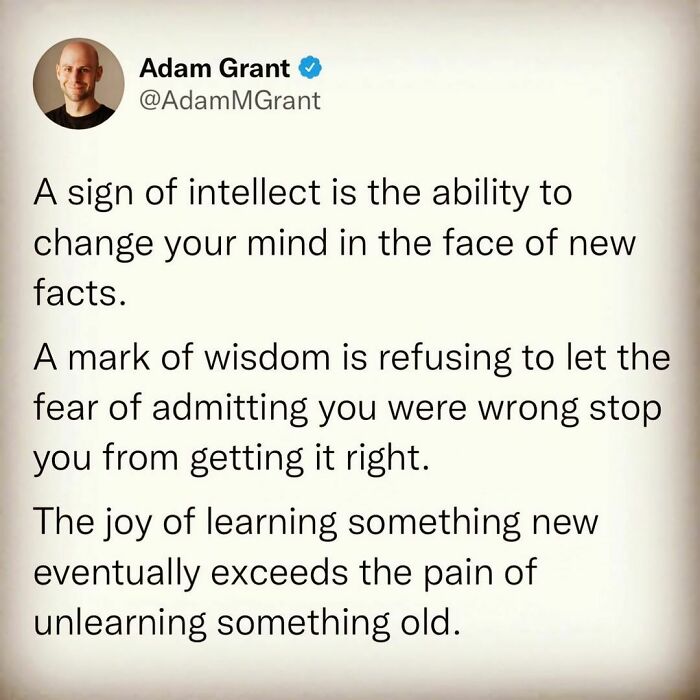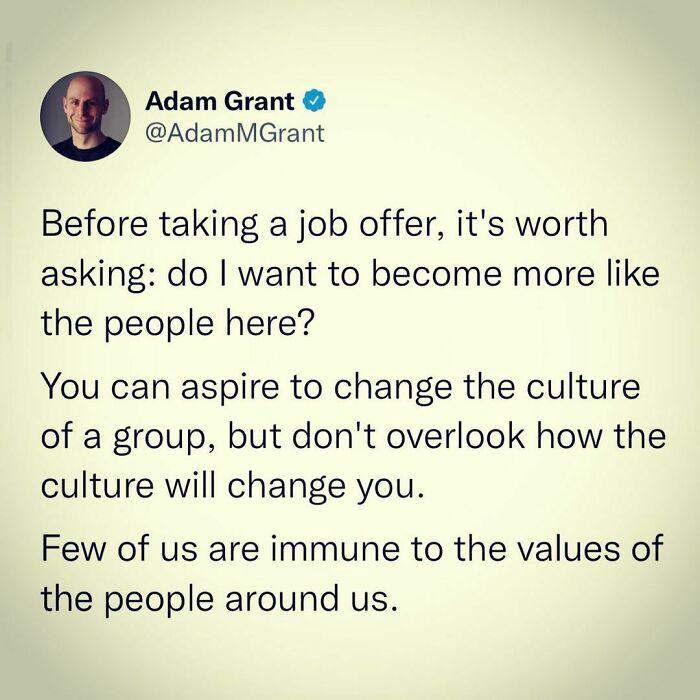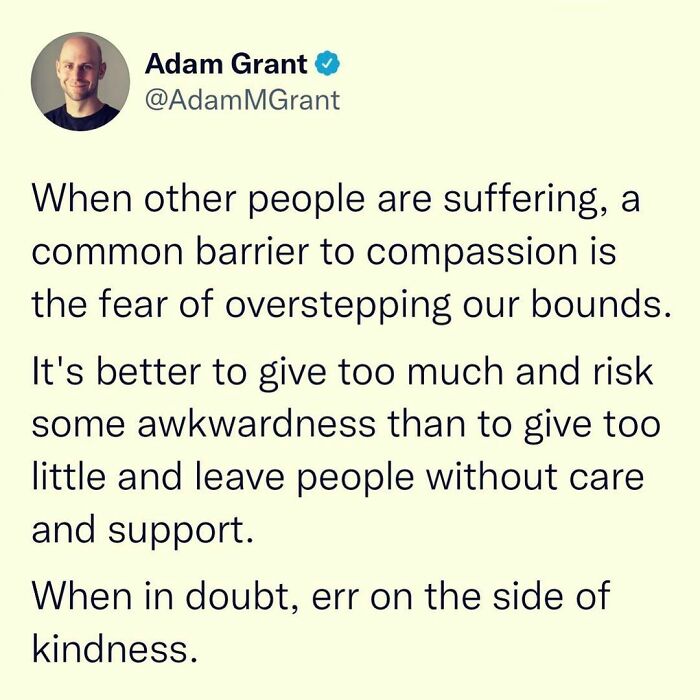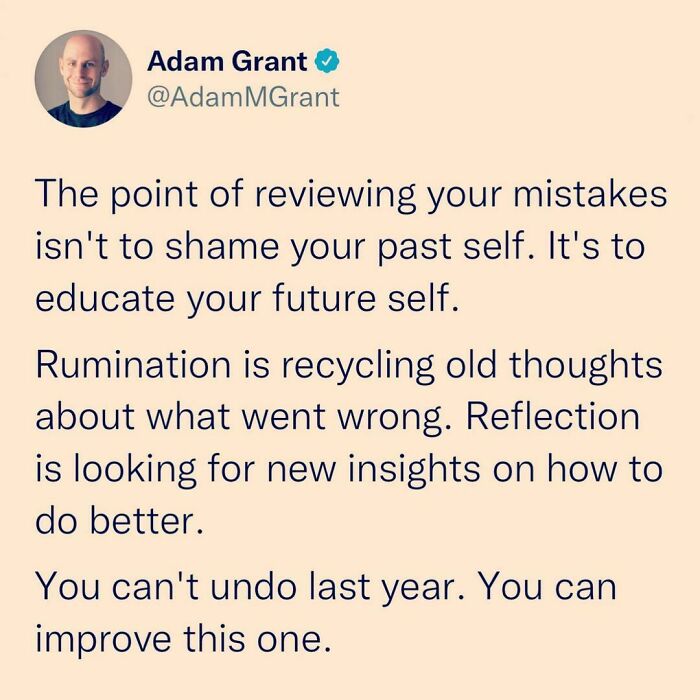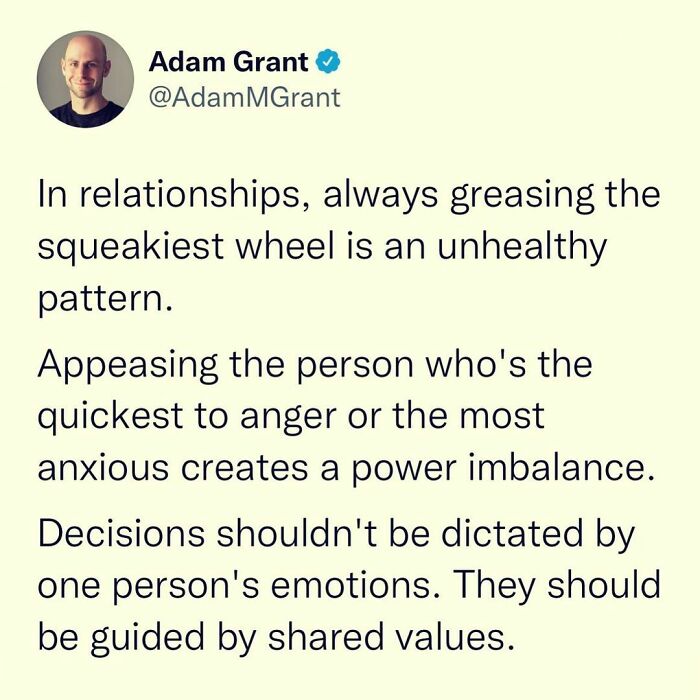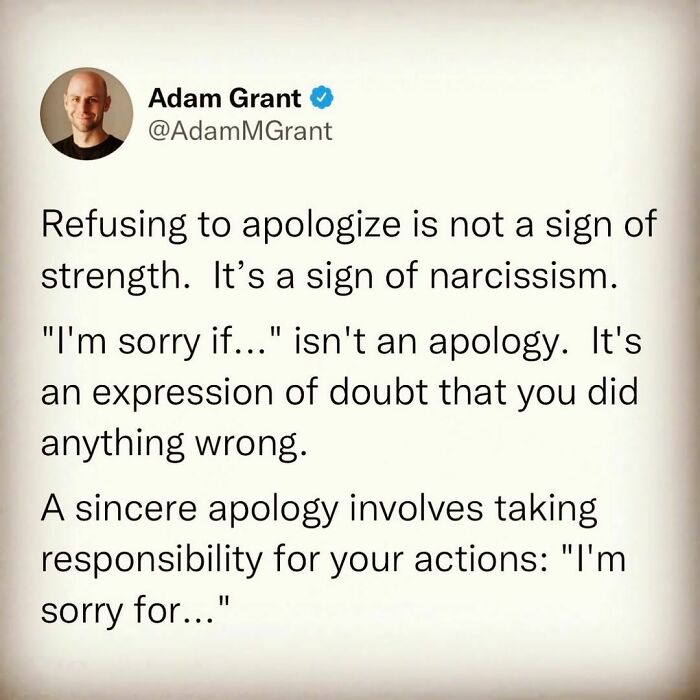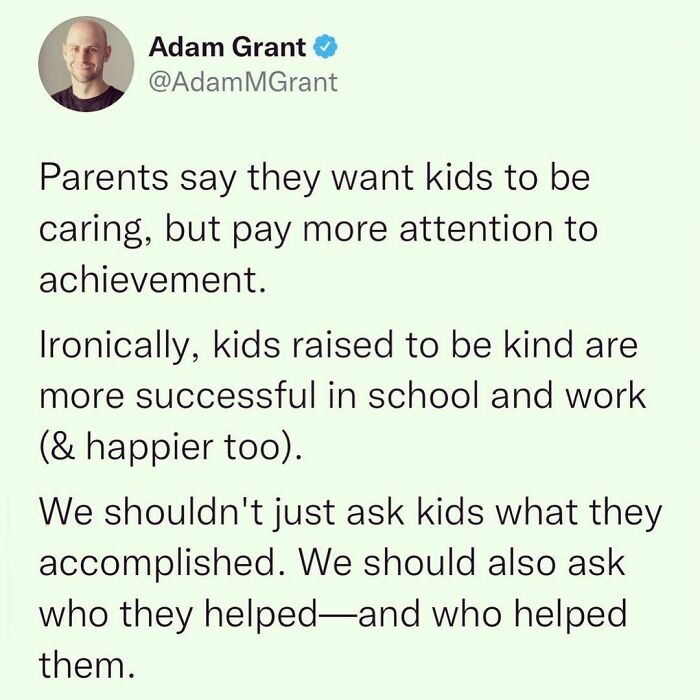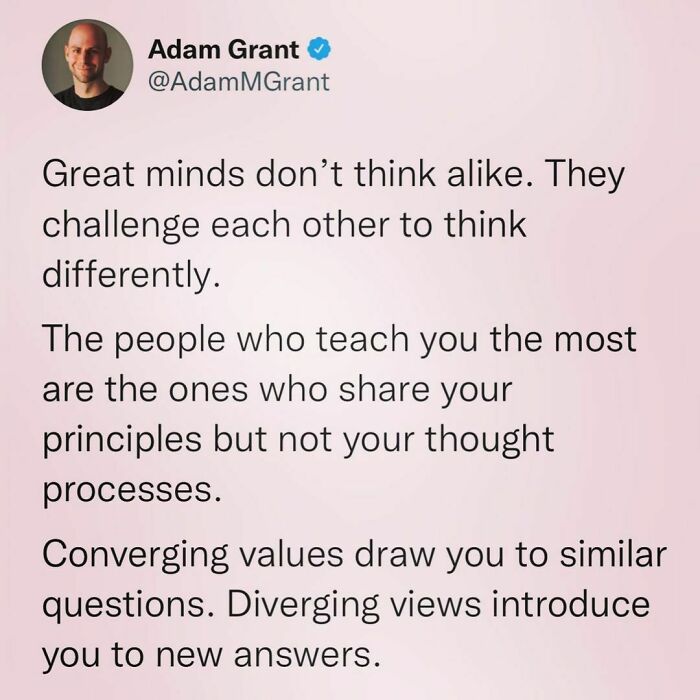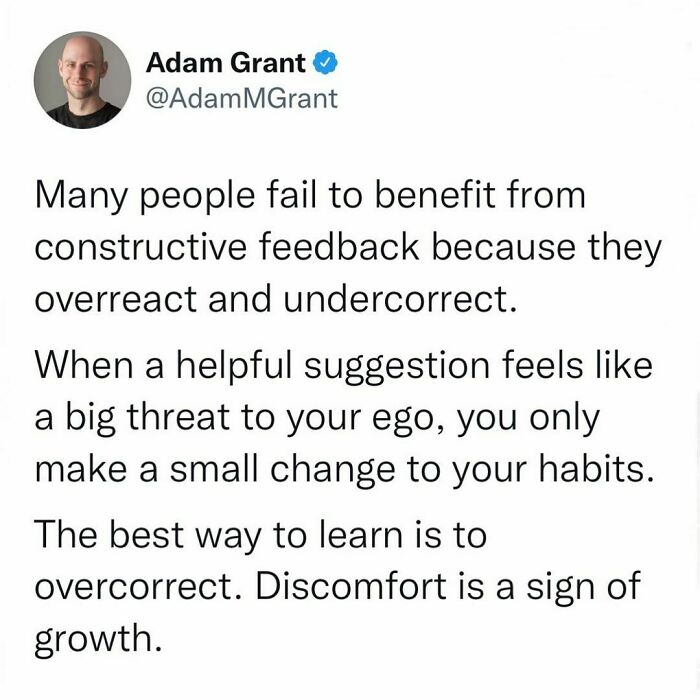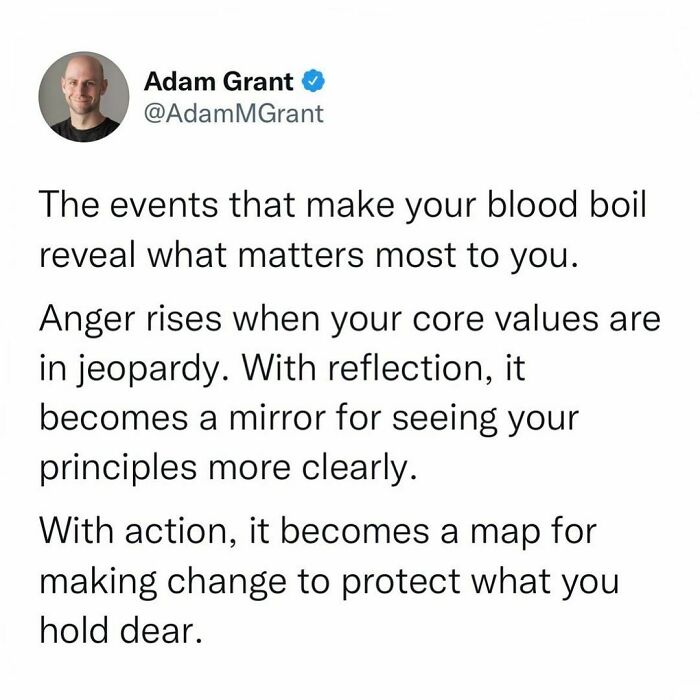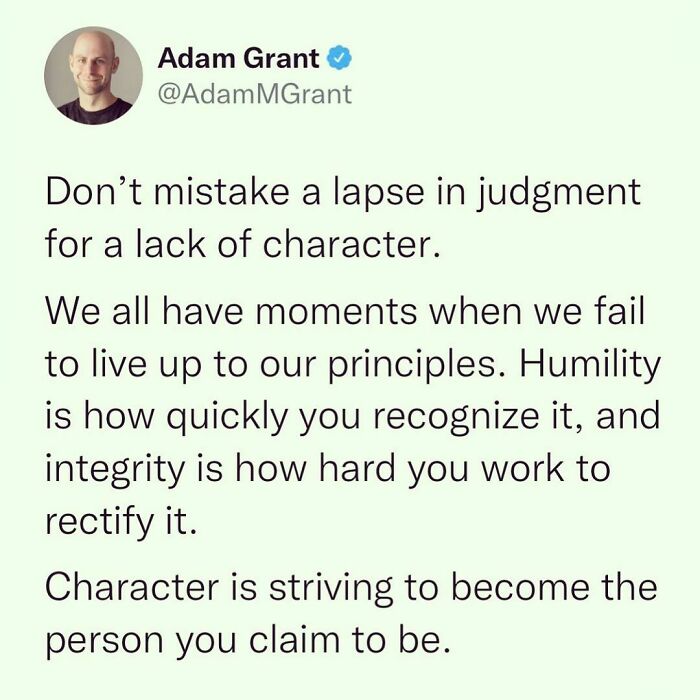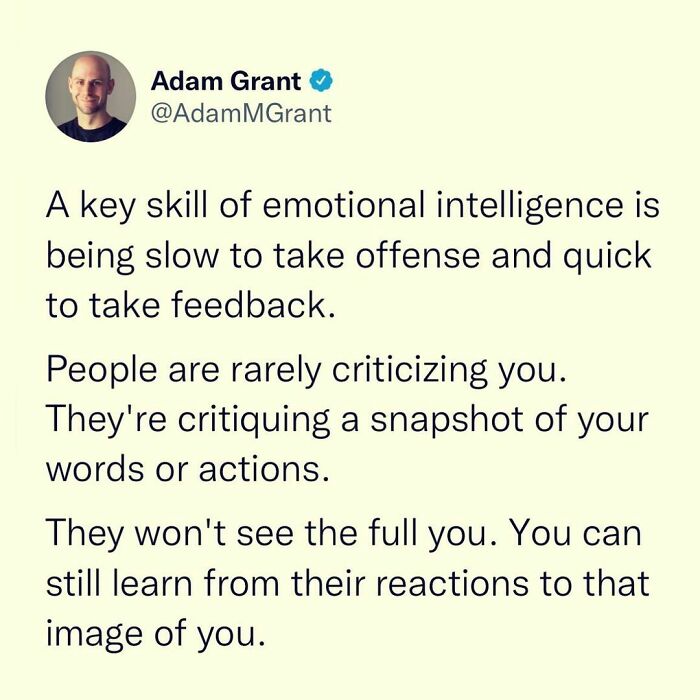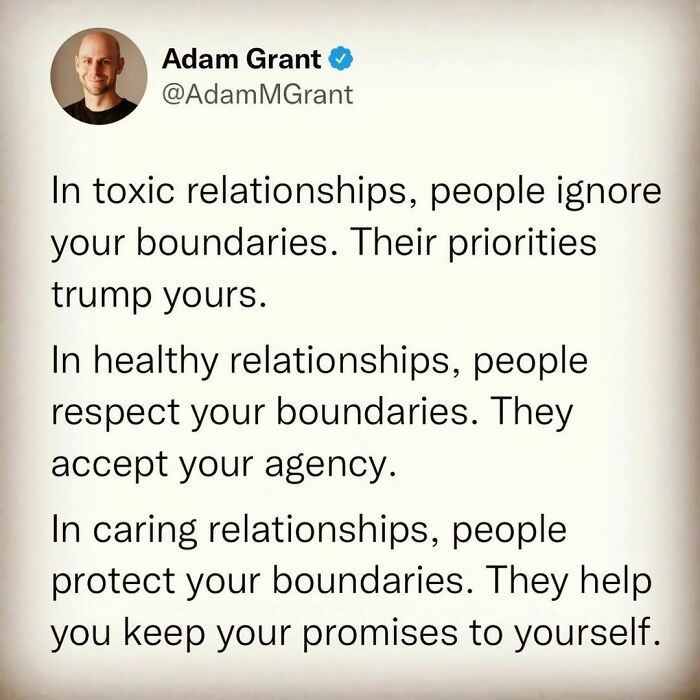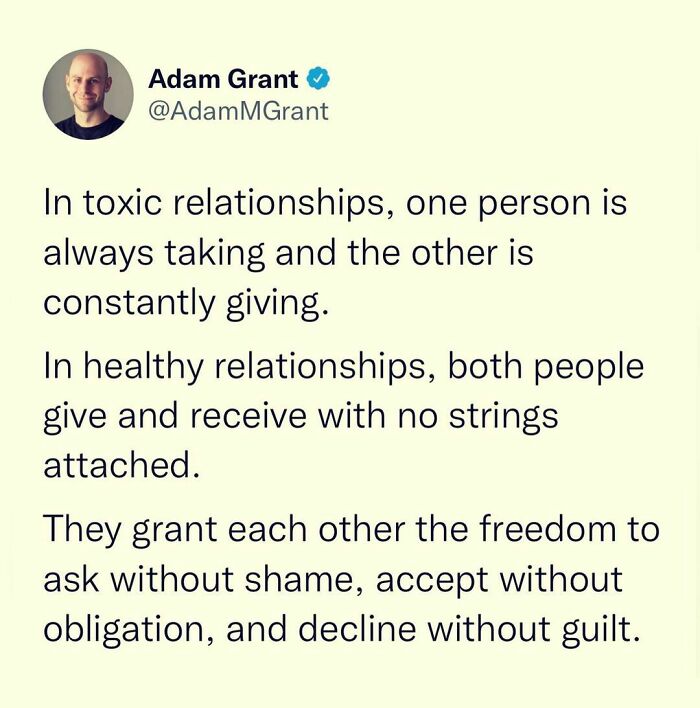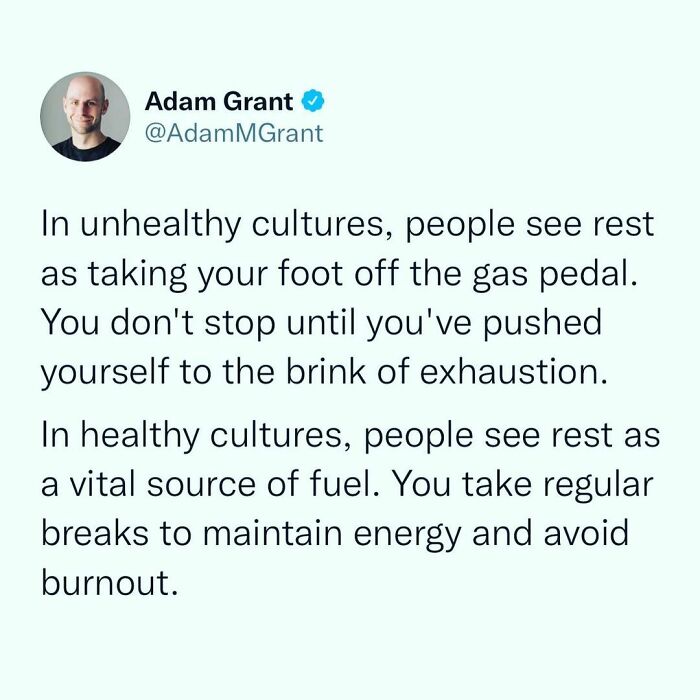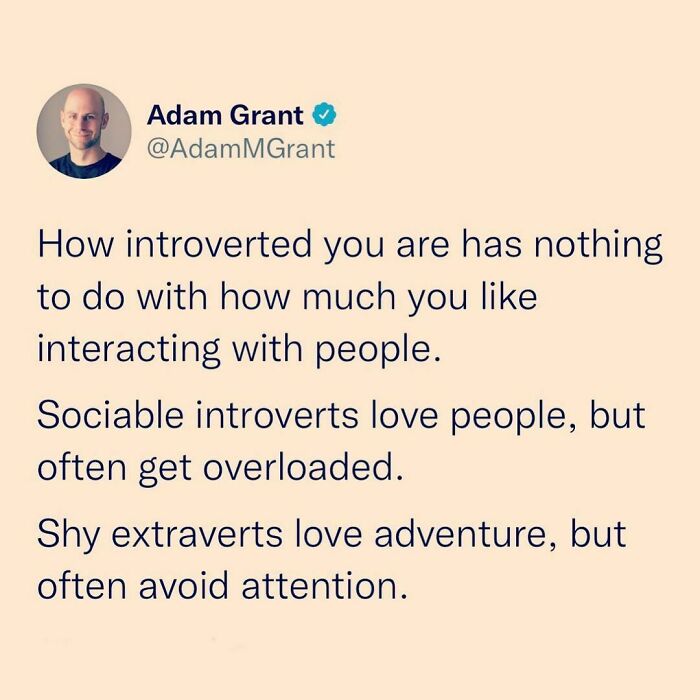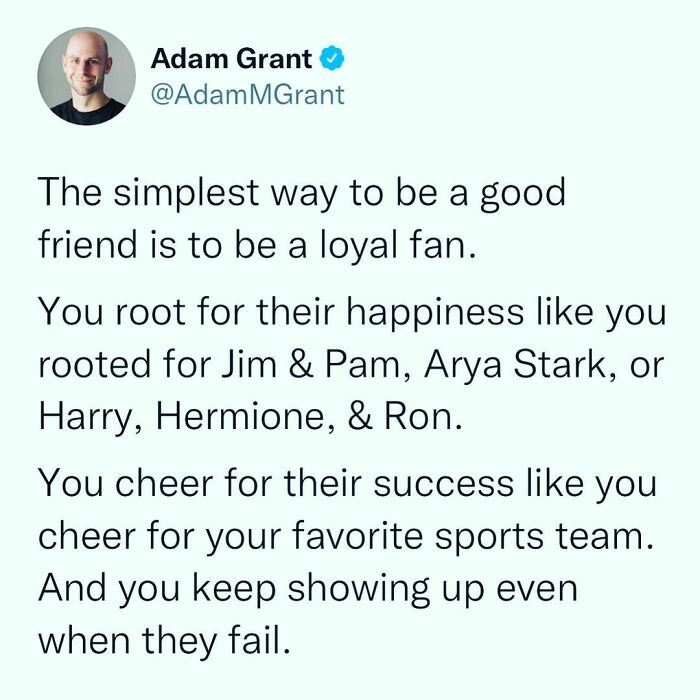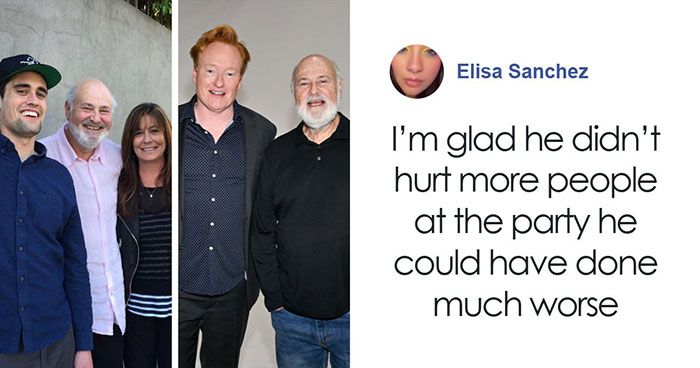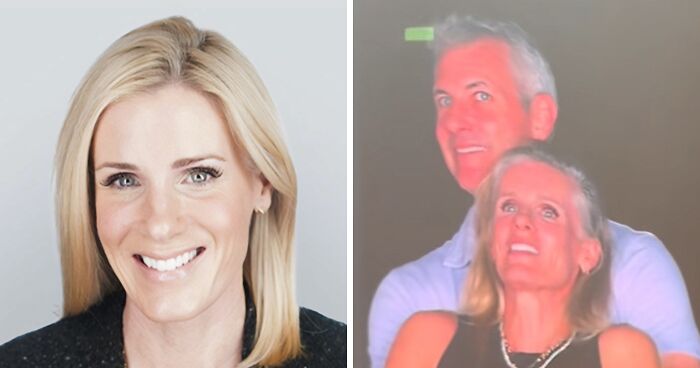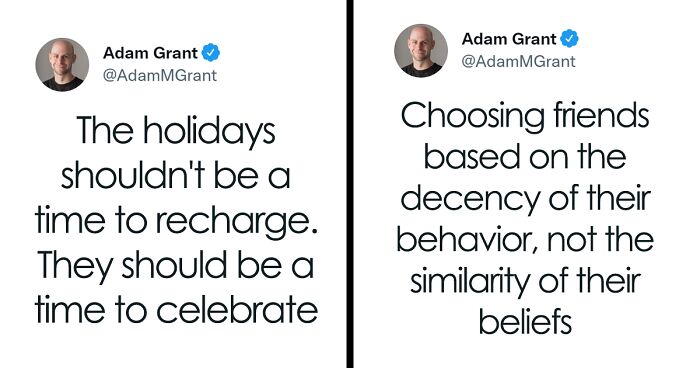
30 Simple Yet Eye-Opening Tips About Work And Life From This Organizational Psychologist
It’s no secret that burnout is one of the most common workplace diseases (along with boredom) in modern organizations. In fact, this recent study found that 95% of human resource leaders admit employee burnout is sabotaging workforce retention. So beware of the rapid workforce turnover before you take on a job offer.
It can be easy to normalize working long hours or being under an extreme amount of stress, especially if we’ve been doing it for a long time or all our colleagues are in the same boat. Your work life balance suffers, and every day feels like an infinite 24-hour-long bender you can barely survive, until tomorrow comes.
Luckily, there are ways to save yourself from this misery, and Adam Grant is here to help our lost souls. The organizational psychologist and bestselling author has been sharing advice on keys to a better work life. “You spend a quarter of your life at work. You should enjoy it!” Grant says in his podcast.
Meanwhile, Grant’s Instagram is a real treasure box full of eye-opening tips, tricks and wisdom bites about taming your work and thriving in it, and his 1.5M follower count proves that this is the kind of content we all need.
More info: AdamGrant.net | Instagram | Twitter | Linkedin | Facebook
This post may include affiliate links.
Adam Grant is an organizational psychologist and bestselling author who explores the science of motivation, generosity, original thinking, and rethinking. Grant has been Wharton’s top-rated professor for 7 straight years. As an organizational psychologist, he is a leading expert on how we can find motivation and meaning, rethink assumptions, and live more generous and creative lives.
What people, and bosses (much much different animal), don’t understand is that the center of someone’s universe can accommodate more than one thing. Their home and family, their health, their leisure time can all occupy the center, but will all be given their fair share of time. When at work, that’s the priority. When at home, that’s the priority. Work gets its fair share of attention, so should never think it has the right to demand more and take away from the others.
For example, in a piece for The Atlantic titled “People Don’t Actually Know Themselves That Well,” Grant argued that we don’t actually know ourselves, and that other people may be even better at that. Grant wrote that according to sixteen rigorous studies of thousands of people at work, people’s coworkers are better than they are at recognizing how their personality will affect their job performance.
“As a social scientist, if I want to get a read on your personality, I could ask you to fill out a survey on how stable, dependable, friendly, outgoing, and curious you are. But I would be much better off asking your coworkers to rate you on those same traits: They’re often more than twice as accurate. They can see things that you can’t or won’t—and these studies reveal that whatever you know about yourself that your coworkers don’t is basically irrelevant to your job performance,” Grant explained in an illuminating article.
In another wonderful article, Grant argued that procrastination, contrary to our common belief, pays off because of the link between moderate procrastination and creativity. “Although it is widely assumed that procrastination is counterproductive, delaying task progress may have hidden benefits for creativity. Drawing on theories of incubation, we propose that moderate procrastination can foster creativity when employees have the intrinsic motivation and opportunity to generate new ideas,” the organizational psychologist wrote.
The organization psychologist argued that in two experiments in the United States, his team tempted participants to engage in varying degrees of procrastination by making different numbers of funny YouTube videos easily accessible while they were supposed to be solving business problems. The results were astounding. “Participants generated more creative ideas in the moderate rather than low or high procrastination conditions.”
In fact, “employees who procrastinated moderately received higher creativity ratings from their supervisors than employees who procrastinated more or less, provided that intrinsic motivation or creative requirement was high,” Grant concluded.
Agreed but extremes in either direction are unhealthy. A lack of action is just as foolish. The wisdom is in knowing what needs immediate answers often moving quickly is better. Or if patience and reflection are the right action for a particular situation. But we all too often hold up the quick as best when it may not be true. Balance and applying the correct principle at the right time is what is important.
Grant has also been helping people to destress their work life by explaining burnout culture and giving tips and tools to overcome it. In a 2020 TED talk “Burnout is everyone's problem,” the psychologist announced that a year prior, the World Health Organization declared burnout an occupational syndrome. “According to some estimates, in the US alone, burned out employees cost over 100 billion dollars a year in healthcare spending. More than a third of employees report feeling burned out some of the time. Nearly a quarter feel that way very often or always,” he added.
This works well for healthy people, not so much for those of us with chronic illness or chronic pain. For a lot of us it is forever - we just have moments where we hide it better than other times. That being said, just lending us an ear and not invalidating our challenges goes a very, very long way. The friends and people that do this for us are invaluable.
Also setting arbitrary deadlines and then refusing to move them when it becomes clear they are not realistic. An extra two weeks might make the difference between done and done well.
According to Grant, the core of burnout is emotional exhaustion, feeling so depleted and drained that you just don't have anything left to give your job. “Evidence shows that when we're emotionally exhausted, our health suffers. Burnout has been linked to depression, memory loss, sleep problems, alcohol abuse, weakened immune systems and even cardiovascular disease. Our job performance suffers, too. When we're burned out, we get less done and make more mistakes,” he explained in a talk and added that eventually, we start to think about quitting.
Finally someone who doesn't get empathy and compassion mixed up. For example, manipulative, psychopathic people have a lot of empathy, they understand very well how other people tick, but don't care (much) about the well-being of others. People on the autism spectrum have a hard time understanding how other people tick, but they can be very compassionate and supportive once they realize that other people are having a hard time.
A tip for all online gamers: if a game forces you to skip sleep or community hates those who rather focus on health then leave that community/game.
The organizational psychologist suggests that our antidote to burnout is not necessarily less work. “It could be more meaning.” He explained: “In a study of hundreds of professionals keeping daily diaries across multiple industries, the single strongest predictor of engagement at work was a sense of daily progress. What that means in practice is you don't need huge accomplishments to feel good about your work.”
On the contrary, what matters most for building efficacy is small wins. “Often those small wins come from having a positive impact on others. I found in my research that when people feel ineffective, helping others buffers against burnout. It makes them feel competent, which leaves them energized rather than exhausted.”
PLEASE. This needs to be normalized. I probably lose 5-6 hours a week to meetings that I really don’t need to be a part of/go on longer than planned because some employee starts going off about things they should really meet with the boss one-on-one about. Then it becomes an audience of 20 listening to 2 people talk about a minor department-specific issue that we can’t contribute to for 15 minutes. Optimize, people!
And sometimes, it's just laziness. If I don't rake the lawn today, maybe I'll forget about it tomorrow.
This is why I get impatient with "where do you expect to be in 5 years?"
Yes, and the cycle CAN be broken but not without actively working on it. No one turn to violence without feelings behind the action. If we focus on the underlying feeling and allow that to exist in a safe way we can move away from violence and aggression. Learn how to sit with and communicate your feelings. Too many men learn that feelings are equal to weakness. And that fear of being seen as weak turn to violence. This is why the patriarchal structures are dangerous for both men and women.
And sticking around through those tough times. Fair-weather 'friends' are a waste.
It's not an excuse, but it can be an explanation. They're different things. We're all human.
Awesome…except you forgot there’s a whole category of us that opted to not have children to make the world better for everyone in the future.
How they treat waitstaff and janitors is a good litmus test.
There is a caveat to this, though. Be on the lookout for those who will take complete and total advantage of this, thereby forcing their coworkers to have to arrange their lives around work. I have worked with loads of these people, and all they do is f**k up everybody else’s work/life balance—-especially if they’re one of the boss’s favorites.
Adam honey, have you so quickly forgotten the hundreds of pages of stultifyingly dull assigned readings in grad school, and I mean hundreds of pages every single week? Speed reading was essential to being able to read them and still have enough hours left in the week to eat, sleep, and have a life.
You can catch more flies with honey than you can with vinegar. People are attracted most to those who are sweet, and least to those who are sour. They’re also willing to do more for someone sweet than for someone sour. See what I’m getting at? Instead of being an authoritarian boss, be an authoritative one. (Look those terms up if you don’t know what I mean, and you’ll get it.)
Here’s a possible compromise: You can keep a stiff upper lip in front of those you don’t want to show weakness to. Then, in private (alone or with someone you trust), let all that emotion come out. You release emotions, but can still appear strong. (I may be wrong. This idea just came to me, because I’ve been in situations where any weakness was immediately pounced on, so no matter how you felt inside, you had to appear strong outside. Yeah, it f*****g sucked.)
Hmmm, no. A lot of opinions I see being shared on social media and the actual news is not based in courage but in a lack of education regarding the subject matter. It isn’t courageous to tell people you are against abortions, for example. 😉
Ok all these different analogies…do you want people to be a fan or a coach? Maybe just lay off the sports references since organized sports are insanely toxic and poor examples of how one should live their lives… 😂
A lot of these are assuming some kind of choice. Many people are scrambling to get even one interview or job offer. And then if they want options for the next one, they have to think about how it looks. I mean, it's a good goal to have and promote healthy environments, but it's not like everyone has the same options.
Cruelty by the big, strong, and powerful toward the small, weak, and powerless. That’s what really gets my blood boiling. I’m normally a pretty laid back, non-violent, and live and let live kind of person, but when I see, read, witness, or find out about that kind of cruelty, I see red and you better hold me back or I will be out for blood. Pick on someone your own size, you f*****g bully!

 Dark Mode
Dark Mode 

 No fees, cancel anytime
No fees, cancel anytime 






